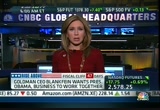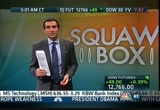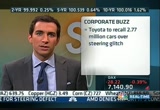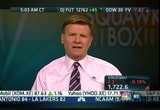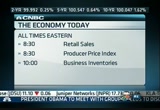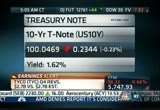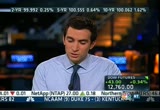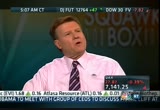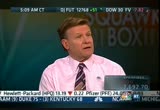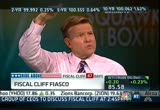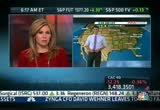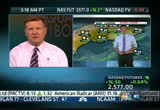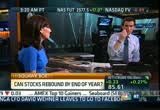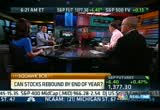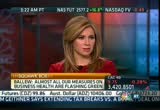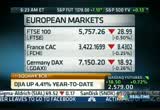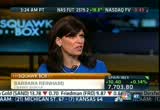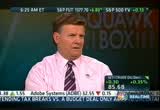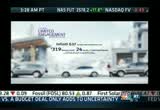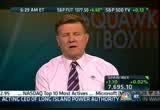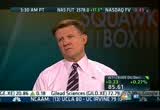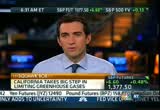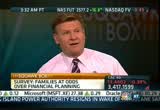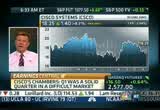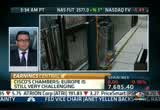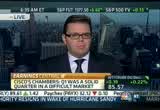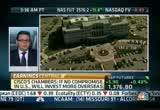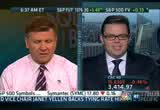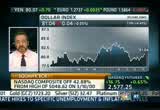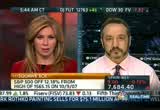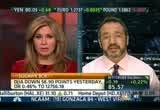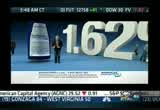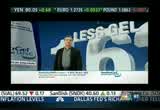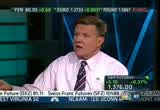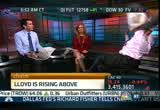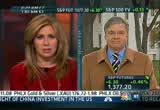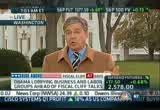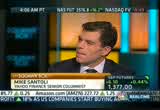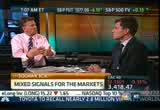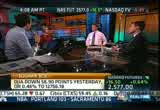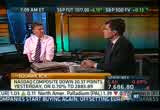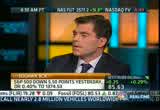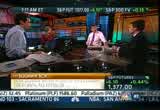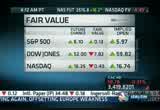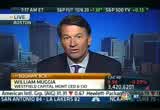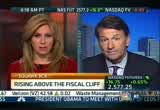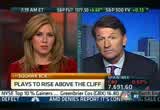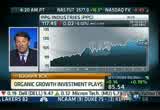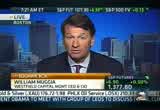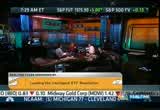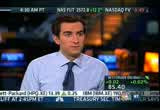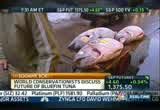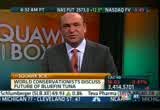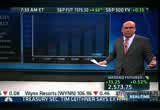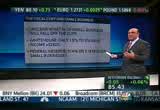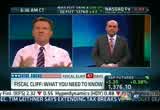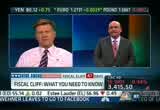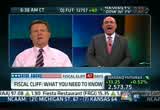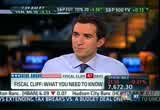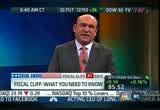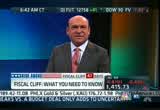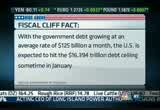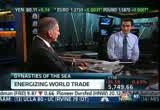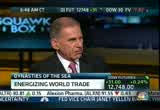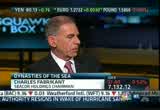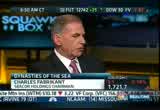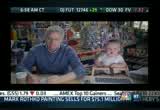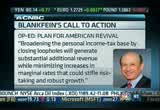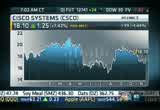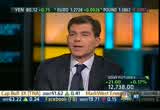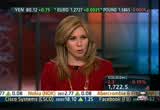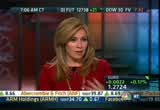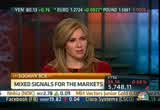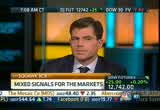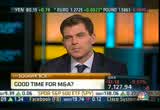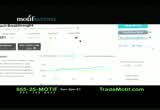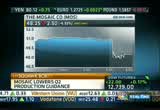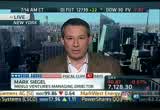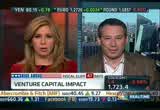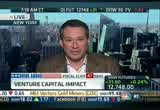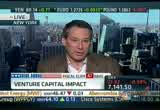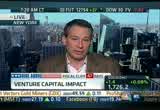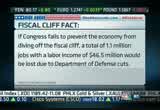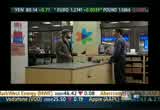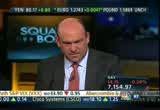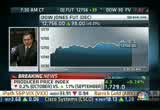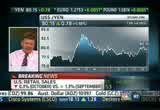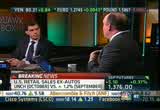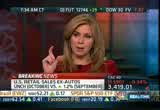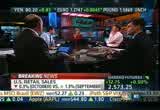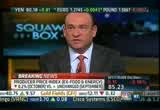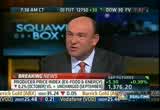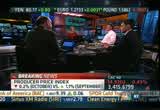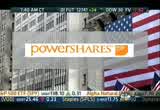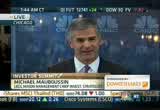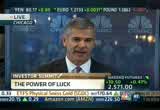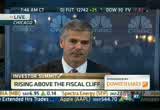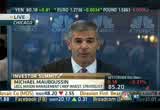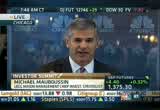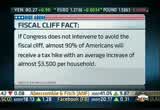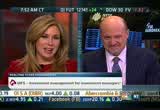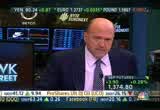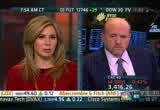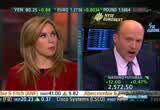tv Squawk Box CNBC November 14, 2012 6:00am-9:00am EST
6:00 am
world war ii. he notes that in the 1930s, there was extreme bitterness between the business community and the roosevelt administration, but the two sides eventually worked together, spurring a colossal increase in industrial production that lifted the united states out of the great depression. blankfein writes "there is more than a trillion dollars of cash sitting on balance sheets of u.s. non-financial companies. certain will increase their capital expenditures currently at anemic levels, contributing to a virtuous cycle of jobs and growth." minimizing increases in marginal rates that could stifle risk taking and robust growth. he also stresses the importance of restoring confidence in public finance by implementing spending cuts and revenue increases. in the meantime, dallas fed president richard fisher tells cnbc that the central bank can't
6:01 am
do much more to shelter the economy. >> we need to completely reboot tax policy and spending policy. if we have temporary fixes to the fiscal cliff, just push out the envelope of indecision until we have a sense of true direction, and it's time for our politicians to get their act together. >> fisher says he does not view the fed as a safety net. that is certainly a change of perception, one that congress is going to have to figure out pretty quickly along with the rest of washington. >> that it is. there's been a number of interviews this morning that would lead you to the same place. cisco reporting better than expected first quarter earnings in revenues, but the tech giant expects flat earnings and slower revenue growth for the current quarter. john chambers sees europe getting worse before it gets better, but he says there are signs of improvement in the u.s. economy. >> we want to be the one company that both exceeds expectations and doesn't bring down guidance. so kind of a hint on terms of what we see. it really says we're in the right spots for growth.
6:02 am
mobility, byod, the internet of everything, video, all growth areas in terms of opportunities going forward. and we think we're positioned pretty well. >> we've also got some facebook news this morning. toyota recalling nearly three million vehicles worldwide, that includes the prius. this is due to problems with the steering system. the announcement comes a month after toyota recalled more than seven million vehicles for faulty power window switches that are a potential fire hazard. mr. kernen, good morning. >> andrew, 20 seems to be what facebook is worth, kind of? >> well, it hasn't moved. >> but it kind of found its -- 38, i don't know. but things are worth something, even after you get the people that are really excited and the people that are not excited and it finally finds a place. but 20 seems to kind of be -- maybe it is worth 20, which is
6:03 am
not -- for a brand-new company to be worth $43 billion is really not that bad, is it? >> if you were to add yourself to facebook to get an account, it would be worth 21. >> if you don't short it when i finally get on facebook -- you know what i did yesterday? >> i don't know. >> i joined myspace. >> you did? >> no. >> oh. [ laughter ] >> that's how long it will take. other stocks to watch today, zynga. i just like saying that. the cfo is leading the troubled online game company. he's joining facebook. david winer is going to take a senior financing position. zynga is also backing its full year guidance. and a couple other stocks to watch, mosaic cut its second quarter. the company points to weakened demand in the international crop for these nutrients in that market. shares falling in after-hours
6:04 am
trading. about 51 all the way down to 48. amd's stock getting hit yesterday. the company says it's not looking to sell itself or any of its assets. the stock had jumped up to the mid twos during regular trading on a report that amd had hired jp morgan to explore some options. on the economic agenda today, retail sales are coming out at 8:30 eastern time. later in the day, we get business inventories. and the minutes from the last month's fed meeting. take a look at the markets this morning. yesterday was a pretty interesting session. we started down about 60 points, ended up moving up 200 points to 140. at the end of the day, the dow was actually down. kind of bizarre. rallied through day and giving that back. at this point, you do see the futures are indicated higher by less than half a percent for the dow and the s&p, up by .6 of a percent for the nasdaq. if you look at what's happening in europe right new, you'll see
6:05 am
that right now at least there are some red arrows. not major losses, but the ftse is down by about 37 points. the kcac in france is down. in asia, saw some green arrows, at least when it cam to the hang seng. in korea, the kospi was down once again by 1.7%. oil prices at this hour are looking like they're up about 18 cents, 85.56. you've got the ten-year note at this point, the yield has been getting pressured, but you can see it bouncing back a little bit today. yesterday it was down in the 1.5% range. if you take a look at the dollar, right now you'll see that it is up against the yen and the pound, but down against the euro. gold prices right now are looking like they're down just barely, just over $2. >> like many other times in the past, there are like really important things happening and then there's kind of -- we're sidetracked by these tawdry
6:06 am
stuff. we've got petraeus-gate and we've got the fiscal cliff. >> i have the most important news. elmo. which if you have children, which you do, even if you don't have children and you grew up with elmo or "sesame street," this is the best news -- >> with little kids. >> elmo is it, right? you want to do a little elmo impression? so kevin clash -- there was obviously this accusation made against him with this underaged situation. >> the kid is already over age. he's saying it happened five years ago. >> he's 23 now. >> he's now happily, i'm thrilled to know this, recanted his statement. >> why is he recanting it? >> they put out a statement saying this office represented the 23-year-old man, he wants it to be known that his sexual relationship with mr. clash was an adult con sensual relationship. he will have no further comment on this matter. kevin clash puts out a statement saying -- >> so he was going to take some
6:07 am
time off? is he now not going to take any time off? >> i assume he can go back to work. he should go back to work. great news? >> yeah, it's good news. >> i'm still confused as to what happened. >> be glad when you get past "sesame street." i liked watching it at the time, but i like watching "walking dead" more. it's more fun sitting down with the kids watching scary movies than it is elmo. >> i'm really into elmo right now. >> i know you are. you have to be. let's go fiscal cliff. >> tampa? >> i think it might be more interesting than that. we'll see. what i did not know with that story was that i understand baseball players and groupies and rock stars and groupies. and actors and groupies. but did you guys know that four-star generals or five-star generals and military guys, that they were groupie bait? did you know that? i didn't know that. i didn't realize that.
6:08 am
that looks like -- with these women -- >> yeah, it's bizarre. >> and we've also got the first pictures that aren't old pictures and you can see they're so missed thpissed that there a paparazzi outside their windows. there's one in the journal of the kelly lady. beth of them are looking at their window. in the journal, it says a woman who appears to be jill kelley. >> she has a twin sister who looks just like her. >> appears to be one of them. i don't know how this finally plays itself out, but it is -- sort of makes it more interesting in that the levels of power that we're talking about are so high, where these people would know the whereabouts of the cia director, know his activities, even maybe privy to some of the stuff about the benghazi investigation that no one else is privy to. who had sex, who didn't. >> 30,000 pages of e-mails. >> that the other guy sent. >> general allen and jill kelley -- >> that appear to be a little bit weird. >> he said yesterday he was just
6:09 am
cc'd. >> which is even weirder. >> which takes away from the fiscal cliff. i had some viewers that were laughing at me because i was saying do we go with closing loopholes and deductions or do we go with letting the tax cuts expire on the wealthy. and they were laughing. they said obama's going to do both. he's going to ask for both. he's going to want all of it. if it's 1.6 -- >> 1.6 trillion over ten years. >> twice where we were with boehner. but might be the beginning of bargain point. but you get 820 billion. so there's another 800 billion. at this point, the others are saying no cuts to medicare, social security, or anything else. and they have to find another 800 billion. >> the president did not say -- >> we know he has to cut some of those. >> my guess is the gop is saying they're looking at a trillion dollars as the number. >> and you saw what paul ryan
6:10 am
said. the house was re-elected. so people re-elected those people in the house for a reason. it's a nonstarter. it's not going to happen. it's not going to be 1.6 billion. 1.6 trillion. to get to four trillion, that would be 2.4. so we said that. he'll go not 3-1 like simpson bowles. he's go one and a half to one. >> that's not going to happen either. >> but what bothers me -- >> the problem is nothing is going to happen. >> what bothers me is i do think you can get to a point where you raise taxes too much and you don't cut spending enough, where you're just funding entitlements by raising taxes and you don't do anything about it. if he had his way, i really think he would do that. i still don't think he gets it. >> when you hear people who are saying things like that, my guess is if you had boehner and president obama sit down in a room together, they could probably come up with an approach. >> we'll see. you don't have your button. >> i do. >> i'll just make one point. >> what's that?
6:11 am
>> if you don't rise above, you know what you do? you sink below. you sink to the low level of a snake. and you sink below. if you don't rise above, what's the opposite -- >> joe's telling you it's your choice. >> it's up to you. >> where does that put you? >> you tell me. it's up to you. i'm rising above. >> you believe that simply wearing a pin -- >> i'm just telling you. if you don't want to rise above, you're perfectly free to sink below, like the snake that you might well be. >> i think that rising above has more to do with what comes out of your mouth than what's on your shirt. >> oh! >> how about that? i don't know what that even means. i don't know what you're talking about at this point. i will just tell you friday is national button day. it's national button day. >> i'm buying a pair of suspenders and wearing them all the way down my shirt. >> you boy got so distracted by
6:12 am
you interrupting him constantly, he left all his buttons here. you can put all of these buttons and your suspenders on friday. >> i thank you for that. >> there you go. coming up, coming up, coming up, no eyes wide shut music quite yet. but we do have stocks that have been battered and bruised in recent days. the dow falling to its lowest level since late july. what needs to happen for the trend to change when "squawk box" returns. >> over president barack obama's first term, the federal debt to gdp ratio increased over 19%. and is projected to increase over 20% by the end of his second term.
6:15 am
it is now time for the global markets report. we'll go across the pond to say hello to ross westgate standing by in london. >> we are down in negative territories. a ratio of nearly seven to three at the moment. trying to get a bit of a bounce going right now. hasn't really followed through. the ftse down half a percent. the ibex is fairly flat. plenty of day to to look at. first of all, in greece, i'm afraid the contraction gets
6:16 am
worse. third quarter gdp 7.2%. the contraction, it was 6.3 in the second quarter. we're now looking like as we go into 2013 for a sixth consecutive year of recession. the numbers just getting awful in greece as well. out of italy, they now raised pretty much 95% of the money they need for the year. yields the lowest we've seen for two years, over two years. the yields coming down to a fairly sustainable amount this morning, 2.64%. so good news for italy, yields there lower. in the uk, broader employment doing fairly well, but maybe we're seeing the first signs of the temporary jobs boost from the olympics coming out. there was an unexpected rise of 10%, although the greater level of the employed rose. that was only until the end of september. at the same time, the bank of england has also sharply cut its growth forecast for next year and raised its inflation
6:17 am
forecast as well, which suggests no more qe immediately from the bank, but does suggest growth is going to be weaker as well, and governor mervyn king talking about the possibility of the uk after that strong 1% growth rate in the third quarter possibly contracting in the fourth. guilt yields as a result today are higher in the uk. that's it. that's where we stand right now. we'll hand it back to you. >> okay, ross, thank you very much. let's get now to today's national forecast. eric fisher joins us from the weather channel. eric, good morning. >> good morning. hello, everybody. good news to report for today. pretty quiet-looking forecast. coast to coast, not much on the map. that means not much rain or snow falling for us. if you're traveling, airports are looking great. chicago and los angeles, barely a delay, at least when it comes to the weather. hopefully a few less head aches for you. lots of 30 this is the northeast. philadelphia 36 degrees.
6:18 am
lots of 20s here. new england starting to feel like winter is around, or at the very least, late autumn. temperatures running below average. thursday, we stay cool across the southeast, look at columbia, 54 degrees. 18 degrees below average for you. for the end of the week, still looking at the chill here all across the northeast, boston, new york running just a little bit below average. we'll also be tracking some rain break out across georgia for this afternoon and tonight. >> in sports news, the los angeles lakers dropping an 84-82 decision by san antonio. the lakers are waiting for mike d'antoni to take over. he's recovering from knee surgery, but is expected to join the lakers this week. in other nba news -- does nbc cover the nba? >> no. >> no, not at all. but we could someday. >> abc disney family. >> it's hard for me to get
6:19 am
excited about early season action in the nba. got to get to the playoffs. i can't wait for college hoops to start and i like that, but man, nba is tough. >> will you go to a nets game with me? >> no. >> can't bring yourself to go to brooklyn? >> they moved? the new york knicks are the only remaining undefeated team in the league. carmelo anthony's 25 points let the knicks to a 99-89 win at orlando. new york is off to its best start since the '93-'94 season. that season, the knicks went to the nba finals. i the like the idea of just rooting for brooklyn just because spike lee will never change, right? he'll always be a knicks guy. even though a lot of his movies were in brooklyn. he's a perfect brooklyn fan. but he's stuck. >> he's more of a jay-z guy. >> who is? >> you must be. >> just in terms of megabucks and power and the wife and all that stuff. the beautiful baby. it's been a tough month for stocks. joining us now is paul bello,
6:20 am
chief global economist, that's what he is. and barbara rinehart is private banking america's chief investment strategist. thanks to both of you for waking up early for us. we were talking about a couple things. first of all, becky, when she started the show was talking butt an op-ed today by lloyd blankfein in "the wall street journal." when we were talking about obama here, sets this tax rate and we decided this isn't going anywhere fast. we talk about this fiscal cliff and rising above all the time. but how important ultimately is all of this to where we are right this second? >> well, i think that it's important for us to take a look at the fiscal cliff in its context of this year and also next year. it's not necessarily how much of the fiscal cliff expires, it's the incremental drag to gdp. this year we've got about a 1% fiscal drag. next year we're looking at a
6:21 am
1.5% fiscal drag. it's the incremental gdp that really matters to the economy. >> the bigger question for us is we think there will be a compromise going into january, maybe on december 31st given what washington is doing. the bigger question is what are we doing long-term to support growth? that is the question. if you're going to raise revenue, are you going to do things to support economic long-term growth to go with it? inevitably, you have to reform entitlements. the question is how. so for us, there's only so much we think will impact in 2013. it's beyond 2013 is the big question. >> in this handicap, is this just a small view that gets done? we are now talking about big deals. all the conversation is about big deals, big deals, big deals. is that where you try to estimate what's going to happen? >> i think it's important to realize the big deals are going to take a long time to figure out. >> what does that do to your gdp estimate? >> you bridge 2013. you assume there's some time of a compromise to elongate the status quo, maybe make some tweaks on the margin and you
6:22 am
focus your time on a broader compromise. >> when things are back and loaded, a lot of times they tend to not figure out -- the big thing is the tax cuts. >> we're living that right now. we're hoping that it does. if you don't, you'll continue to get this burden on the economy. keeping in mind, one and a half to 2% growth means 120,000 payroll jobs a month, no real gains in income. >> and it will get back to 5.5% unemployment until like 2020. >> you'll all v all of those other factors that go along with it. inevitably, you have to get a compromise that's meaningful because this isn't just about marginal tax rates. this is about very big structural issues. $30 trillion in unfunded medicare. >> you saw john chambers out last night with cisco's earnings. but europe was the weak spot. you said it wasn't getting any better. >> well, look, europe is definitely in this muddle
6:23 am
through scenario. a couple issues you have to resolve. greece was given somewhat of a reprieve in terms of their financing that they have to do this week. there's a big eu summit coming up at the beginning of december. you need to see movement on two fronts for europe. something more towards a banking union would be very positive for the markets. but incrementally, you also need to see something on better growth for europe as well, because you need to see europe have a credible way to start to grow their way out of their debt cris crisis. it justin kutchcan't just be au. >> the most severe issue in the near term because greece still isn't on a sustainable path. >> if we go over the cliff, what happens to greece? >> well, you just get contagion around the globe because you'll get a substantial drag if the u.s. >> we don't talk enough about this sort of global implications. >> they're severe not just because of the u.s. we're talking about fiscal drags around the globe.
6:24 am
you look at the run-up in debt and structural imbalances, it's global. even germany. everybody talks about germany as this rock star. german debt is at 80% of gdp. >> the performance has suffered recently, too. >> europe is going through at least a mild secondary down term. it's spreading into the northern parts of europe. i wouldn't expect any relief from europe. the real question is the strength in china and the strength in the u.s. >> there's two points also that you're kind of missing. there's a big drag in the second and third quarter of this year to global economic growth. you're actually starting to see the turn. it looks like a lot of the data that came out of china over the past week has been far more favorable and also the data psych until the u.s. is starting to turn up as well. so you've kind of been through this soft patch this year and you're actually starting to see some marginal improvement in two of the big economies. that's why the emerging markets are behaiving relatively better. >> paul and barbara, thank you
6:25 am
so much for joining us. >> paul and barb. that would probably be two women, though. >> did you see this rothko? did you see the latest rothko? >> the last one -- >> it was pretty. >> ugly, stupid. here's the new one that sold yesterday. 75 million. >> it's pretty. >> my daughter could -- >> actually, i think i have a print of that in my office. >> andrew, what do you think? i'll make you one during the commercial break. >> i thought we were going to take a shot at you. >> it should be a little bigger, though. make it bigger. i don't like the placement. greco is not playing along. a little bigger and a little higher. coming up, shares of cisco with better than expected results. the company does have some worry spots.
6:26 am
we'll get the reaction when we return. maybe new buildings? what about updated equipment? they can help, but recent research shows... ... nothing transforms schools like investing in advanced teacher education. let's build a strong foundation. let's invest in our teachers so they can inspire our students. let's solve this. impact wool exports from new zealand, textile production in spain, and the use of medical technology in the u.s.? at t. rowe price, we understand the connections of a complex, global economy. it's just one reason over 75% of our mutual funds beat their 10-year lipper average. t. rowe price. invest with confidence. request a prospectus or summary prospectus with investment information, risks, fees and expenses to read and consider carefully before investing.
6:28 am
with investment information, risks, fees and expenses try running four.ning a restaurant is hard, fortunately we've got ink. it gives us 5x the rewards on our internet, phone charges and cable, plus at office supply stores. rewards we put right back into our business. this is the only thing we've ever wanted to do and ink helps us do it. make your mark with ink from chase.
6:29 am
good morning and welcome back to "squawk box" here on cnbc. i'm joe kernen along with becky quick and andrew ross sorkin. our top story is an economic ticking time bomb. what am i talking about? the fiscal cliff. about a dozen ceos are scheduled to meet with president obama today, including ge's jeff immelt. et another friend of the show,
6:30 am
andrew liverus. i don't know how many pins will show up there. the dude from procter & gamble. we'll see whether they make any headway today. although in the last administration, i don't think they really got -- i think they got -- they were listened to a little bit. and when they left, i don't think much of what they said made its way. >> both sides have talked about making a renewed -- >> they're always nice. the whole council he set up for himself didn't meet anymore. you saw the final findings. none of them were adopted. >> hopeful that they will find some ways to make an agreement. >> does everything have to be tactful? does everything have to be nice? >> no, i'm hopeful, though. i'm not even pushing that. i'm hopeful that they will listen and both sides will listen and both sides will make points and they will find some
6:31 am
things. >> me, babs and alec are rooming. streisa streisand. they wanted to go last time. i'm going. we're all going to room. sounds like quite a place. >> let's talk about some other headlines. today, california is set to unveil a new attempt to limit greenhouse gases. the state is going to be holding its first sale of carbon emissions permits. experts say it's a landmark experiment that california hopes will serve as a model for other u.s. states and the federal government. a new survey finds that families are at odds over financial planning. fidelity investments finds that sharply conflicting expectations between older parents and their adult children. among the survey results. 24% of adult children expect they will have to help their parents financially at some point, yet 97% of parents don't expect to need help. that's a oble nearly all of older parents and their grown children disagreed
6:32 am
on whether a child will take care of their parents if they become ill, and adult children underestimate the value of their parents' estate by more than $100,000 on average. i think that's an issue across the country. do you want to counter that? >> no, not really. >> how are your parents? my parents are doing great. >> mine are gone. i got some new parents, actually. cisco first quarter results are beating the street. brian white covers the company for topeka capital markets. if i don't ask you about the fiscal cliff, there's no reason to even have me on. what do you think? >> it's surprising that cisco was able to deliver a very strong quarter and a very -- >> with all the uncertainty. >> with all the uncertainty. i just look back at tech, you
6:33 am
know, this season was horrible. we cut numbers on 71% of the companies for the december quarter. i would say cisco and the tech world was probably the bright spot. they put up some very good numbers last night. >> cisco was one of the few tech stocks a couple years ago to regain a lot of its luster and trade back above $30. i remember it. can't even see it on the chart we're showing right now. i remember when chambers finally said some of the macro factors were starting to affect cisco. and here we are still below 20. what will tell you that this company actually turned the corner and can get back to trading in the mid 20s, high 20s? >> i think a couple things. number one, they did go through a major restructuring last summer. major restructuring. they have a coo onboard now. they also started to focus and narrow down the product line. they got involved in areas like consumer electronics. they really deviated outside the core, so they've gotten more
6:34 am
focused. and i think they've really focused on their gross margin profile a lot more in terms of how they're designing their products. last summer, what happened about 18 months ago, public started to slow down. then the consumer business started to weaken from the standpoint that the products just weren't competitive. then they brought a lot of new products to market. i think they've got those issues under control. they were definitely cautious last night on the world. europe. public spending, federal spending in the u.s. but they talked about rays of hope in the u.s. market. >> yeah. and how important -- if you had to divide how important u.s. versus the rest of world is for cisco, is it 50/50? what is it? >> exactly. it's about 54% america. so u.s. is about 45%, 50%. >> so what do we see in terms of -- i don't know, what's the next big thing? is the cloud still influencing what cisco's product line will look like at this point? how does the company -- what's
6:35 am
the strategy that they're using now? >> one area that they entered about four years ago was a server market with a product called ucs. ucs was up about 60% year over year. it's a business that drives a data center. the data center in the cloud is where this company is pushing. we look back historically, there are more enterprise switched. now the big push is in the data center. you think about the server market, that's about a $50 billion opportunity. so i think cisco's vision -- and i agree with it, they need to be a broader i.t. vendor, not just a networking vendor. server ucs broadens their market exposure. >> so what does scientific atlanta do at this point? do we even talk about it anymore? does it complement what they have? >> it definitely complements the
6:36 am
product portfolio when they sell the service providers. so they're big into routers. they're now big into wireless routers. what they're starting to do is continuing to push new setup box dvr type oriented solution. so i don't think it's that important of a business. i think most investors aren't thrilled with that business. they feel like it's a piece to the puzzle. >> so they don't say oher, it's a stupid move. they still say they're glad they did that? >> cisco does for sure. i think investors question. but, you know, it's a piece of the puzzle for service provider. i think the cloud is the big opportunity and that's where they're really pushing and that's a growth opportunity. >> in the old days, i used to always say do they make a blue router? i could never get the color i wanted if routers. do you know? do they offer different colors at this point? i don't like those gray ones is what i'm saying. does it come in blue? do you know? do you know the product offers? >> well, for the home, it definitely comes in blue.
6:37 am
because i have one for sure. >> i want like a powder blue. the mac really did do that. so i'm not totally being facetious. but mostly. anyway, brian, thank you. >> thanks a lot. >> i scramble your letters, i could call you brain. >> a lot of people in china call me brain. >> they do? >> yes. >> hearing what you said for the last two minutes, i think that's a pretty fitting description of you. thank you. >> thanks. when we come back, we're going to talk a lot more about what's been happening with the markets. if you have any comments or questions about anything you see here, e-mail us at squawk@cnbc.com. we'll talk about what's going to be driving today's trading session when we head to chicago right after this.
6:38 am
6:41 am
welcome back to "squawk box" this morning. take a look at futures. dow would open about 55 points higher. let's get you to the early morning headlines. panasonic preparing for a garage sale of sorts. the company will be axing 10,000 jobs by the end of march. not good news. about a fifth of panasonic's 88
6:42 am
business units are losing money currently. only half so far meet a target for at least a 5% operating margin. let's get to the trading day ahead. bob, we've been talking an awful lot about the fiscal cliff. there's this drew barrymoum bea president meets with constitu t constituencies throughout the week. is that what they're looking for? >> i guess. the fiscal cliff, have they made any more progress toward averting the fiscal cliff. i just don't have any faith that they'll get anywhere in terms of a short-term agreement leading to a longer-term agreement. i don't think that will happen. i think they'll kick it down the road. i think they'll kick the can down the road again. i think we'll avert the fiscal cliff very short-term. but being a trader here in chicago, i have the luxury of being able to look at things short-term and feel pretty comfortable with that. >> what does that mean? >> well, it means that i don't
6:43 am
have any bi-levels in any independent stocks right now. i'll see if there's upward momentum or downward momentum and then i'll look for places to buy on that dip if it's downward momentum or look for places to buy a rising market and i don't have either right now. for example, goldman sachs, i can't buy it before 111.8. the s&p itself is act before it did in may, whereas the rallies are getting weaker and weaker and that led to about an 8% or 9% decline before i could get back involved in any significant way on the buy side. so i am looking for more repeats of yesterday when the market attempts a rally, but those rallies aren't going to hold until we get something out of washington. it's interesting, because to me, generally, i like gridlock. i believe small business, entrepreneurs, when the government stops moving the target, we do okay. and if you look at 2010 is when
6:44 am
the economy started to improve, that's when we started to get gridlock. i want the government to leave things alone. now we need them to do something and i just don't have any faith that that's going to happen. >> europe and all sorts of other countries are also dealing with these very same problems. the bank of england's mervyn king has been making statements this morning where he's talking about how stimulus has delayed the rebalancing of the economy, but it can't do so forever. he talked about the advancement of the british pound, how it's risen in value, how that has not been a welcome development. sounds like this is the same problem in just about every one of the developed nagtions. >> it is. he's already looking at the inevitable problems of the policies that keep us out of these short-term crashes. so i have the luxury of being able to look at things shorter to medium term so i can look for buy levels and equities. the dollar index is starting to get a little bit of a bid again. like it did in may 2012.
6:45 am
i don't think there's anywhere to hide except short-term long dollar. gold is going to suffer. crude is going to suffer. equities are going to suffer in the short-term. but i believe there can be buy levels in here again. we're looking for the government to fix something and i don't have any faith they're going to fix anything long-term. so i'm going to look at it short-term, wait for the short-term solution and get involved at that point. >> i think it's probably that explanation that describes why some of these rallies have been short-lived and have been weaker along the way. bob, thank you very much. oh, go ahead. >> i was just going to say absolutely, it's short covering right now, and some small -- it's kind of a toe in the water sort of buy. it's nothing long-term. >> okay, bob. thank you. >> thank you. coming up, we're going to head to the chairs -- i don't know what to talk about. i was thinking about blankfein. it's like, you know, you had the lady from the seiu. she's nice. well-intentioned. so the president -- someone's going to say lloyd blankfein
6:46 am
thinks we should do it that way. is that going to make a lot of sense? goldman sachs -- a bankster says we should do it this way? don't tell us with a you want to do. no one's going to do it now. anyway, the stories catching our attention this morning. first, as we head to break, a stock to watch this morning, tyco, the provider of commercial fire and security systems and services posting quarterly results earlier this hour. revenues were in line. we'll get bernie madoff's take on what to do with the fiscal crisis. [ male announcer ] you are a business pro.
6:47 am
monarch of marketing analysis. with the ability to improve roi through seo all by cob. and you...rent from national. because only national lets you choose any car in the aisle... and go. you can even take a full-size or above, and still pay the mid-size price. i'm going b-i-g. [ male announcer ] good choice business pro. good choice. go national. go like a pro.
6:48 am
who have used androgel 1%, there's big news. presenting androgel 1.62%. both are used to treat men with low testosterone. androgel 1.62% is from the makers of the number one prescribed testosterone replacement therapy. it raises your testosterone levels, and... is concentrated, so you could use less gel. and with androgel 1.62%, you can save on your monthly prescription. [ male announcer ] dosing and application sites between these products differ. women and children should avoid contact with application sites. discontinue androgel and call your doctor if you see unexpected signs of early puberty in a child, or, signs in a woman which may include changes in body hair or a large increase in acne, possibly due to accidental exposure. men with breast cancer or who have or might have prostate cancer,
6:49 am
and women who are, or may become pregnant or are breast feeding should not use androgel. serious side effects include worsening of an enlarged prostate, possible increased risk of prostate cancer, lower sperm count, swelling of ankles, feet, or body, enlarged or painful breasts, problems breathing during sleep, and blood clots in the legs. tell your doctor about your medical conditions and medications, especially insulin, corticosteroids, or medicines to decrease blood clotting. talk to your doctor today about androgel 1.62% so you can use less gel. log on now to androgeloffer.com and you could pay as little as ten dollars a month for androgel 1.62%. what are you waiting for? this is big news.
6:50 am
can't get through your -- oh, we're back. no, can't get through -- can -- >> no, it's -- >> they're on a magnet, right? >> yeah. >> you win. >> come on. that's pretty good. >> you win. >> it appears you could be making fun of it, though. >> no, i'm not. trying to rise above. >> if you got it pierced, you could have -- have you seen them? >> they do the whole thing -- >> looks like it stretches out the lobe a lot. i was kidding about blankfein. what he says if you read this in the journal. he's got it, nails exactly what
6:51 am
we should do. i was making the point that, you know, if you try to convince -- you know -- the diminishing return on having a bankster in their eyes lloyd blankfein is part of the problem. for him suggesting how we fix our fiscal problems is not going to resinate with obama at this point. >> no, but he tries to look like he's rising above. >> but lloyd is right, he's a smart guy, knows how to run a business, knows what the private sector and growth could help all of our fiscal problems and he's right about this. but i don't know how far he gets with it because he's lloyd blankfein of goldman sachs. but becky's got it here. you're rising above. obama seeking $1.6 trillion, you say that's his opening bid. >> because this is double when talks had broken off. $800 million in tax -- the revenue increases. we want $4 trillion -- >> so it was $3.2 trillion to
6:52 am
$800 billion, that was 4 to 1. his opening bid is 1 1/2 to 1. >> the final negotiation should get somewhere between $1 trillion to 1.2 trillion in tax increases, revenue increases. >> $2.8 trillion in spending cuts. >> all right. if you -- if you -- >> you can't look at me anymore. >> i can't look at you. because i'm wondering it's on his right year, what does that mean -- i don't know. i could never keep that straight. so to speak. >> what are the rules? >> i don't know. >> i remember yellow, i don't know. no, but here's the thing, if they come down to $800 billion. if you just let the bush tax cuts expire on the wealthy, that's $800 billion. so you could get it from that. so to get to $1.2 trillion, you're going to need to let those expire on $250,000 and above and close loopholes to do that, even to get to $1
6:53 am
trillion. what are the chances? and i'm telling you, they're not good that the house does this with the bush tax cuts, they're not going to do it, i don't think. >> i think the question comes down to -- if you actually seeks cuts to some of the programs like a medicare and medicaid -- >> well, they are the bush tax cuts on the table, becky? they want -- simpson/bowles wants to take our generates lower. >> there's a way to raise the revenue without changing the marginal rates. if you change the effective rates so that you don't have somebody paying 12%, that's what you should be going after. >> you should. and that's going after -- did you read geithner? >> if you limit the deductions. >> there's not enough deductions out there to make -- >> he says the president is not prepared to extend the upper income tax cuts and he said it too. >> if you were to actually go and cut the loopholes and deductions and limit the deductions, which some democrats have said we should do what mitt
6:54 am
romney was proposing, by limiting the deductions, if you limit it at $12,000 or $17,000. >> will he ever to his base say i made a compromise and i'm letting the high -- >> i think eventually logic prevails on both sides where you say if we get there by coming up with cuts and finding a way to raise revenue, if you raise revenue, which is the same as a tax increase, if you can just raise the revenue and get there, there's a way to do it. >> some don't believe it's like raising it, right? >> it's the same thing. >> his base wants those high-end tax cuts to expire. >> one way or another, if you make rich people pay more, it's going to have to be progressive. if you make rich people pay more by closing loopholes, it's the same thing. i don't understand the idea of we've got to parse this so it comes out one or the other. >> and where we're going to be -- >> rich people are going to pay more. >> you remember the last two years? >> yes, unfortunately. >> no leadership, just bickering and posturing and backing one
6:55 am
person backing the other into the corner and saying you're the obstructionist. that's what we're going to get. >> read this article at some point. i'm sure it's going on in everybody's home. how everyone's using their blackberry under the covers now. >> you take your work to bed with you. >> you take your work to bed with you. you look at your blackberry while your wife's sleeping? oh, you don't do that. >> i take it to bed because it's my alarm. rise above the nation's leading ceo on their way to the white house today. preview their message to president obama and ask what the markets want to hear from them. we're coming back with a big show starting in a couple of minutes. [ male announcer ] introducing the new dell xps 12.
6:57 am
6:59 am
washington. >> because this country is bigger than the tailors or you or me or anything else. >> they're ready to present their ideas to the president and we're rising above the rhetoric with the details. and a strategy session for your portfolio. what investors are watching for as the drama unfolds from washington to wall street. get the names only here. plus, what you need to know about the looming fiscal cliff. >> i know the cliff is unattractive. it would cause a lot of damage to the american economy. >> we're going to explain as the second hour of "squawk box" begins right now. good morning, everybody. welcome to "squawk box" on cnbc, i'm becky kwquick along with jo
7:00 am
kernan and andrew ross-sorkin. dow up 60 points above fair value and s&p up by about 6 1/2 points above. of course, these markets can be volatile as we learned yesterday as the market moved back and forth and ended up the day down about 60 points for the dow. in our headlines this morning, we have more recall problems for toyota. the automaker is recalling almost 2.8 million vehicles worldwide to deal with two issues. one involves a water pump and the other is a defect in the steering shaft. no accidents have been reported from either one of these problems yet. cisco system shares getting a boost, cisco earned 48 cents a share for the first quarter, 2 cents above estimates, revenue also above consensus, and john chambers cites cost control. and the fed vice chair says that short-term interest rates may need to stay at nearly zero until early 2016. that is about half a yearlonger
7:01 am
than the time frame suggested. she says that may be necessary to help lift employment levels and it's important because janet yellin has been mentioned as someone who could be the next chairman honeywell, walmart, general electric, p & g, pepsi, ibm, and chevron. we're going to talk about that looming fiscal cliff. john harwood joins us from the white house lawn this morning. and john, the big question is, will the president be listening to some of the ceo suggestions, or will this be more of a situation where the ceos are going to listen to what he's going to lay out? >> probably more of the latter than the former. i think the president sees his election having won 332 electoral votes in nearly all the swing states, giving him a little more strength in negotiations across the board. he's been involved in outreach for the last several days. yesterday, meeting with labor and liberal leaders. he's meeting today with those business leaders you mentioned. he's also communicating with the
7:02 am
public directly with a press conference here with the white house this afternoon. and i think what the president's trying to do is build a constituency for this balanced approach he talked about, meaning spending cuts on the one hand, including two major entitlement programs, which are a big driver of the nation's spending problem. but also revenues and he's trying to figure out how to get republicans to build on the conciliatory signals that john boehner's been sending. >> we talked earlier this morning about what the "wall street journal" has at the top and the story that a lot of people have been talking about. laying out $1.6 trillion as the baseline for what he'd like to see. double where the talks left off back in the summer of 2011. is this just an opening bid and we expect it will be somewhere in the middle of those two numbers? >> that's what i expect. i don't think you start out by laying out your bottom line. and remember, that's a bottom line that he laid out publicly in september of 2011 after the grand bargain talks were
7:03 am
concluded unsuccessfully. so this is -- this is basically no change in his position. and why would he change having just won an election? but i think you're going to see some back and forth. and if question is how much revenue can you get from closing deductions and loopholes and if so, what kind? and do rates need to rise in order to get the revenue you need to make a deal? and i think what he wants is some public assistance from business leaders who are concerned about the impact of the fiscal cliff. he wants to put their shoulder to the wheel to try to move republicans, especially, to support what he wants to do. >> john, do we know the math on what can be done in terms of additional revenue simply by raising or closing loopholes and getting rid of some of the deductions? >> well, depends on which ones you close. we know that -- >> if we were to move like the "new york times" said yesterday, a romney-style plan, pick your
7:04 am
poison, make it $25,000 worth of deductions or whatever number you want. >> reporter: i don't think you could get to $1.6 trillion that way. and it -- again, the shape of it. do you do charitable, mortgage? how far down the income scale do you go? democrats, some democrats have talked about 500,000, some democrats have talked about $1 million. where do you draw that line? my guess is you end up with a hybrid of slightly higher rates at the top, but also closing that bunch of loopholes. >> right, because you can't get there with letting the tax cuts expire. you only get half way there. >> if you let all of them expire, you get a lot more. >> i don't mean that. that's not what they want to do. $250,000 and above, $820 billion. i was listening closely to everything you said, but i also saw a basketball score go by. did you -- were you paying attention? >> reporter: my man, even though
7:05 am
i had this 7:00 a.m. live shot, i stayed up until the last minute of the duke/kentucky game. >> a lot of freshmen? >> reporter: a lot of freshmen, but you know, when number eight takes out number three, number eight's got a reason to feel happy and that's us. >> does calipari ever get a freshman? >> they're all freshmen and then they go and they're first round nba draft picks and then a new round of freshmen lineup picks. >> anyway, cincinnati won, i'm excited already. it feels like i just lost that crappy ohio state pick i had last year. i'm ready for it again, are you ready? i'm ready again. >> is cincinnati going to have a peaceful team this year? >> versus xavier? that was something, wasn't it? that was amazing. that messed up cincinnati's chances, i think, and actually that didn't help. that's the rumble in cincinnati. john, thank you. >> reporter: okay.
7:06 am
>> i like that look too. >> isn't that a great coat? >> that's a great coat. >> camel hair? >> our guest host this morning, yahoo finance, senior columnist, and mike, you look at everything as you do so well in the prism of the stock market and the moves we had. have we been up a day since the election. >> barely. well, you know, of course, monday we moved as little as physically possible. >> .3, right? but people are not tieing it to obama's reelection, they're tieing it to the intransigence is that is emerging on the fiscal cliff. >> yeah. >> we may be hearing, oh, it's going to be okay. but the markets at this point are nervous first and maybe listening later. anybody who has capital gains, don't you think you might sell some stuff before the end of the year? >> i think that's happening. i actually think that's overplayed as a factor of the overall market direction. i think it's going on.
7:07 am
no doubt about it. you look at the highly appreciated stocks and look at what's going up in the muni etf. clearly people are rotating stuff around. >> what about the notion that the far left is ready to go over and the far right looks like they're ready to go over because it would solve a lot -- we had a guy on arguing that if you let them all expire, that the growth engendered by the corporate cash on the sidelines, once we knew we were closing the deficit quickly, we wouldn't go into recession. >> lockheed martin was saying 10,000 layoffs. >> well, they're 82% of the government. >> that's a few too many links down the chain that i think the market's willing to go and basically say well, actually trust us. no, a lot of people saying shock therapy's the way to go. i think the markets have a little bit of muscle memory of debt ceiling. and the last thing -- i always say the last thing that made smart people feel stupid, smart
7:08 am
people felt stupid because they thought the debt ceiling was a no-brainer. it's the most rational thing not to mess with the whole thing. and now we're operating as if it's a similar thing. i think the stakes are a little bit lower as frustrating as it is, the ultimate stakes is a little bit lower. $50 billion a month -- >> it's not a cliff. >> all that stuff comes into play. >> i think the fever broke after a couple of days. >> it's a blue slope but with moguls, that's what they said. >> mike, do you not believe the ceos who say they're talking about serious layoffs if this happens? >> i do believe it. i also believe they've pulled forward -- they're cutting capital spending. obviously, that's kind of front loading some of the pain. i do think there's real life effects. i kind of am viewing the government shutdown of the '90s than it is the debt ceiling. i also do think, though, for the market's purposes, grand bargain is not necessary. we need to get past this fight. >> don't you think you get past
7:09 am
this fight and we're going to be having the same conversation about the next grand bargain. >> only if you put artificial deadlines because of expiring -- >> they're not going to agr something that gets you out there hanging. >> last week, we talked about who's going to blink first. and i want to condense it down to what we're talking about here. >> yeah. >> the house is not going to let those high-end tax cuts expire. they're not going to go for a deal with that. the president is going to force their hand by trying -- >> they're not going to let them expire. they're not going to sign a deal. >> that involves just $250,000 and above. the president keeps promising to trumpka, and the more he does, makes me feel he's serious. so if the house goes over the fiscal cliff, but we get a recession, doesn't that end up tarnishing the president? or does he -- is he looking at
7:10 am
2014 and taking back the house by putting these guys in an obstructionist role again? >> i'm not sure it's quite as mercenary as the electoral impact of who gets blamed right now. first of all, i see a poll that says people think we're going over a cliff and it would stick to republicans more than the president. >> and you could win back the house and do whatever you want for two years. >> at least have your second term stand for some principle that you actually carried through the entire campaign as opposed to -- >> would you -- would you accept a recession to go back to social transformation in 2015 and '16? do exactly what you want. >> there's another layer of that, which is not so much accept the recession as a forgone conclusion. it's halftime, both sides have somebody at the chalk board. and both sides say, and then the markets panic and the other guys come to us. that's the fear. >> if in eight years you could solve the income disparity, if
7:11 am
you could do it and that's what you want to do -- >> i don't think you're solving anything. i think what you're saying is as the economy recovers, if you have the higher rates there. look, there was no real budget magic in the '90s. great markets and high enough rates on investment gains that the deficit closed. it wasn't any kind of grand plan from the beginning that closed the deficit. >> but in the '80s when you could elect someone like ronald reagan, i'm not sure you can do that again. some of those policies were probably responsible for what happened in the '80s. those aren't going to happen this time. >> no, in the '90s, you mean. >> no, in the '80s. if jimmy carter had been reelected i'm not sure we would've had a great period in the 1980s. i'm not sure it's our birthright to have another great -- >> well, that was the whole thing. >> mike's not going anywhere. we're going to continue our conversation with him. up next, though, stocks you need to have in your portfolio for 2013 regardless of whether the economy spirals off the fiscal cliff.
7:12 am
that means growth companies with lots of cash to buy back stock. the details on that next. but first, take a look at shares of abercrombie today. earnings sharply better than the street forecast. a & f raising guidance, stock trading higher on that news. and michael jeffries, the ceo of that company, got that airplane. what's the song they play on the airplane? it says "take me home"? take a look at futures this morning, s&p 500 looks like it'll open up about six points higher, dow would open up about 60 points higher and nasdaq a little over -- if a budget is not agreed upon to avoid the fiscal cliff, the average middle class family will pay almost $2,000 more in taxes. ain. time for citi price rewind. because your daughter really wants that pink castle thing. and you really don't want to pay more than you have to. only citi price rewind automatically searches for the lowest price.
7:13 am
7:15 am
welcome back. corn prices could rise to a record $9 a bushel in the next six months. now, the firm ag resource suggests that global grain markets continue to feel the effects of severe weather disruption. corn prices looked at them recently, $7 and corn do not go together. that's where it is right now. >> they do lately. >> it's unbelievable. >> remember the drought and all the stuff that happened after that. >> it was always $3, $4. >> i remember hearing farmers back in july talking about $4.50
7:16 am
with it and couldn't believe where they were seeing it move. >> i thought you were going to say, i remember growing up because you pretend being a farm -- >> indiana. i grew up across the street from corn fields. >> that was oklahoma. >> no, i was born in indiana, i went to kindergarten for part of my kindergarten in indiana, graduated from high school in indiana. my parents grew up in indiana, they met at purdue. >> was there a corn field? >> my cousins were de-tasselers. >> what? >> you have to go in and pull the detasselling. >> you know about corn. i apologize. >> i didn't know about that. >> no, i didn't either. i thought that was something you do with your loafers. >> take the tassels off. >> de-tassel them. >> all right. we've been talking daily about the looming fiscal cliff. hour, minutely. our next guest has a few ideas about how you should be positioning your portfolio in this environment of uncertainty. he manages more than $14 billion for westfield capital. and will, i know you've got
7:17 am
interesting thoughts about what's working right now and what people should be doing. which is great, we hear from a lot of people who freeze up at this point, keep things in cash. but you're looking specifically at stocks that might benefit from things like an improvement in the housing industry, which is something we heard yesterday from home depot. >> yeah, exactly. i think the one big difference with the debt ceiling negotiation, for example, the republicans had an incentive to make the current administration look bad because they're trying to win an election, right? well, now with the election over, i think there's an incentive for them not to obstruct. and so i do think something will get done. it'll most likely be a minor deal to buy some time and maybe we get a major deal in 2013. but at the end of the day, i think there'll be some fiscal drag in the first half of '13. rather than sitting cash where you get zero, what can you do? i think the key in an uncertain environment like this is to find organic growers that also have massive return capital stories. and we're in a situation right
7:18 am
now where there's times to make big bets, this is not one of them. economists tell us 5% gdp growth in 2013, and i've had economists come in and say negative two. you've gottest ma i estes esteso have massive return of capital, that's the way you outperform in an uncertain environment like this. >> massive return of capital can be done in a couple of ways, sometimes buying back shares, sometimes it's dividends. but the dividend payer, people have been questioning that because part of what's going to happen is the taxes on dividends are going to go up too. >> yeah, absolutely. go back to the name you first brought up i reported yesterday, home depot. they're growing organically low single digits. if you look out the next three years, they'll have $26 billion in free cash flow, $9 billion in dividends, leaves about $17 billion. if they use the balance sheet a little bit, they literally can buy back 20% of the company over the next three years.
7:19 am
>> wow. >> i find it hard to believe that's going to perform in this environment. tax rates may go up, hopefully only to 23.8%, but on the other hand, if you buy bonds, you buy corporates, you invest in anything else, you're paying the max tax rate anyway. i feel like the dividend stocks, it's a free lunch if tax rates stay here, i hope they do, but they probably won't. i don't think the tax issue is that big of a deal -- >> you think those companies just translated into buying back more shares instead of paying out big dividends? >> exactly. or you may see some companies rush to pay special dividends for the 15% rate. i'm not a huge fan of that. but, yes, they'll convert to more stock buyback. and there are ways to play where you can invest in organic growth companies that also have the massive return of capital. way it also does, preserves optionalty for the investor. if things get worse, you're not going to -- you're going to outperform on the way down, you're protected. but if the economy reaccelerates
7:20 am
back into '13 and '14, great, if housing recovery accelerates, earnings goes up even more and cash flow goes up more. >> tell us one company that fits in that profile. >> we talked about this renaissance in u.s. manufacturing driven by very low energy prices. we're self-sufficient energy for the first time in years. another company like ppg, they really own the coatings business, about 70% of revenues from coatings, they're growing 4% to 6% organically and end the year with $2.5 billion in cash. they just sold their business, another $1 billion, that $3.5 billion in cash, 60% go to grow the business, 40% return to shareholders. you've got 5%, 6% top line, 10%, 12% net income growth with stock buy back and dividend going up 15% a year. you get 2% while you wait. if things -- if we don't do it on a fiscal cliff and things get
7:21 am
worse, not going to get hurt. >> where did you buy comcast? >> comcast we've owned for a couple of years. that's another one that has morphed into a return of capital story. when we bought it just superior business model in a tough environment. if things get better, great, employment improves, we're going to have more hook-ups, housing improves, more connections, great growth story. if things don't get better, we're trying to protect for the downside and keep that optionalty if the economy improves. comcast could be a monster return on capital going forward. and that's been a big core holding for quite a while, as well. >> no kidding, you've done well -- you bought it down in the low 20s? >> i don't know the actual cost price in front of me. i can tell you it's been one of our big holdings for a couple of years. home depot and lowe's we bought at the end of '11. we had a thesis that housing was bottoming. and now the housing improvement
7:22 am
is accelerating and that's a big deal for the u.s. economy when you think about the spillover effect in construction jobs, you know, furniture, auto, cement, everything that comes with household formation in new home purchases. >> well, we want to thank you for joining us today. >> my pleasure, becky. >> and you've probably seen our series dynasties of the sea. up next, the story of the chicken of the sea e. we're going to talk tuna. time now for today's aflac trivia question. bill cosby starred in nbc's popular 1980s sitcom series as which character? the answer when cnbc "squawk box" continues. aflac! ha! isn't major medical enough? huh! no! who's gonna help cover the holes in their plans? aflac! quack! like medical bills they don't pay for? aflac!
7:23 am
7:24 am
governor of getting it done. you know how to dance... with a deadline. and you...rent from national. because only national lets you choose any car in the aisle... and go. you can even take a full-size or above, and still pay the mid-size price. this is awesome. [ male announcer ] yes, it is, business pro. yes, it is. go national. go like a pro. well, having a ton of locations doesn't hurt. and my daughter loves the santa. oh, ah sir. that is a customer. let's not tell mom.
7:25 am
[ male announcer ] break from the holiday stress. fedex office. can help make you a better investor. our e-trade 360 investing dashboard shows you where your money is, live. e-trade pro is so usable you'll actually use it. and our apps are the ultimate in mobile investing. become a better investor at e-trade. ♪ now the answer to today's aflac trivia question. bill cosby starred in nbc's popular 1980s sitcom series "the cosby show" as which character? the answer, cliff huxtable.
7:26 am
>> i love that show. >> fiscal cliff. >> cliff week. >> what was yesterday's? >> i don't know if we did a cliff yesterday. >> engelwood cliffs. maserati's headquarters. >> i want to read my tuna story, now i can't? going to read my tuna story next block. >> petulant. >> they blanked me out. which programs will go, which will stay? what it all means for your money? ♪ [ female announcer ] today, it's not just about who lives in the white house, it's about who lives in the yellow house, the green, and the apartment house, too. today we not only honor the oval office, but we honor the cubicle,
7:27 am
and the home office as well. because today it's about all of us. and no matter who you are, you're the commander-in-chief of your own life. ♪ to investing with knowledge. the potential of td ameritrade unlocked. nyse euronext. unlocking the world's potential. to a world of super-connected intelligence. the potential of freescale unlocked. nyse euronext. unlocking the world's potential.
7:29 am
welcome back to "squawk box," everyone. in our headlines this morning, this is the busiest day of the week for economic reports. we'll be getting october numbers from retail sales and producer prices. we also have business inventories for september that are out at 10:00 a.m. eastern. and the fed's going to be releasing the minutes of the most recent fomc meeting at 2:00 p.m. eastern time. the fed minutes will come smack in the middle of president obama's post election news conference.
7:30 am
that's set at 1:30 p.m. eastern. the president will be fielding many questions about the fiscal cliff. you can see that news coverage here live on cnbc. the long island power authority chief is stepping down amid controversy about the utility's performance amid the devastation of hurricane sandy. he said he had been planning for months to resign. >> there was a story, lead story about long island power and how awful -- >> governor cuomo set up a group to go looking into how all of these power authorities actually performed during this. >> there are crazy things going on in my neighborhood too where these guys are working hard and they come from all over. some union -- some non-union guys were turned away. other ones, i heard, standing around, they didn't know where to go. it took a long time, when they did come, they weren't aware we were still down, we had to flag people down, two full weeks. anyway, back to the tuna story we promised you. fishing experts are meeting in
7:31 am
morocco to discuss the future of the blue fin tuna. participants are expected to call for an increase in quotas for tuna. the blue fish has begun recovery in recent years after at one point being on the brink of extinction. in japan, as you can imagine as the world's largest tuna consumer. sushi, right? >> right. >> expected to argue for the increase, conservationist oppose the move. >> he's been booing in the corner. >> you don't eat it, you just catch it, right, steve? >> is this japan? >> they shouldn't be increasing the quota? >> why? >> because they have no idea about the stocks. they try to pretend there's one stock in the mediterranean, one stock in the atlantic, they have no idea. it's bad data leading to bad decision. >> if earn to take this conversation, you know what it would lead to? the tragedy of the commons.
7:32 am
>> good point. >> when there's ownership of something, you conserve. when anybody -- everybody going after the same thing, they figure if i don't do it, somebody else is going to do it. if you own timber, every time you take down a tree, you plant two more. >> much better about protecting the resource and the europeans contend they have their own stock. but we've shown through the tagging data that these fish go across the mediterranean to the atlantic, up and down the coast, it's an extraordinary fish, a good one to preserve. >> okay. >> okay. >> let's go back to steve since you're there. you've got an interesting report, and i promise you i'll be listening very carefully about the fiscal cliff and who is going to be impacted. >> i think if you haven't sort of felt the impact of this or understood the impact, you might after this. and the warning to accountants here, folks, you might get a call from your clients after this report. so whose taxes go up and by how much? first thing we've got to do, on the bottom here, this is a
7:33 am
quintile. divided up the country into equal 20% brackets here. so 20% of taxpayers, the lowest, and the second. here's the taxes that exist right now, the levels, adden o the fiscal cliff. so the lowest tax quintile goes up by 3.7%, and the top up by 5.8%. how about the top 1%, 7.2% increase in their taxes. okay. that sounds, percentages, that's not really numbers. let's put actual dollars on it. now, here we go. there's a whole bunch of things that will take effect. the health care law taxes they come on anyway. we want to show you the total rise in the -- there are tax extenders, things that expire every year, the amt, the bush tax cuts, payroll tax cuts and other things from the recovery act. let's do the math here. first of all, again, these are now the numbers here, 20% of taxpayers are in 0 to 20,000, and then 108,000 and above.
7:34 am
so there's the first rise. that's the tax extenders, amt expiration, that would not be renewed if we go over the fiscal cliff. the bush tax cuts expiring. big hit here for this top quintile and less so as we move to the left. and the payroll tax cuts, they expire too, about $100 billion total here. we layer that back on. that hits the top quintile, and other aspects of the recovery act. the bottom quintile up by $412, $2,000 for the third quintile, and $14,000 if you're $108,000 and above. that's everybody, it includes the top 1%, which we're going to take a special look at now if we take a look at where these guys go. these are all the other elements in the top 1%. this includes people, by the way, who earn what?
7:35 am
they would be $380,000 and above, all the way up to whatever it is, $200 million. their taxes would go up by $120,000 on average in that. becky? >> that's an average number. >> it's an average number. we don't know what the median is. now, another big part of this debate is what happens to small business. i will tell you that i spent about 20% of my time getting that other data together and i spent 80% of my time trying to figure out the effect of small business. and the best i can tell you right now, it is unclear what percent of small business will fall off the cliff or be hit by the cliff. the white house is seeing only only 1.5% to 2% have greater than $250,000. a report says 11.4% or 2.13 million small businesses have incomes greater than $250,000 and they are by far the biggest employers out there. so i can't really nail down between this 11.4 and 2.13. you can rest assured, there'll
7:36 am
be some impact on small business, we don't how much. becky? >> it's 54% of the revenue, right? >> it's a big part of the revenue, and the question becomes, you know, what percent are hit by it and how they react to it. >> what i got out of that and what was so depressing and sort of ironic when becky asked, 120,000, you think someone that makes the -- >> 380,000 -- >> you think, wow, that sucks, how about the people that make -- not make, but that have tens of millions of dollars that don't pay themselves any ordinary income. it doesn't touch them. they're laughing. they're laughing. maybe they pay -- >> if you change the tax code and actually went after the money. >> it'd be better. if you want to soak the rich, let's soak them. don't soak them like this. >> what happens is the tax bill for the guy who is in the forbes 400, makes $200 billion, his is averaged in there -- >> broaden the base. all that money should be opened
7:37 am
up to taxation somehow. >> going back saying what's the impact on the person in the lowest quintile paying $400 versus an extra $14,000. >> you showed us, taxes are going up for everybody. >> if we go over the cliff. that's the primary take away. >> the payroll tax cut is probably not going to stick around anyway. that's not been something that a lot of people -- >> that's almost certainly gone. >> if they all go, you do a lot more for the deficit. >> that's true, joe. >> someone with a net worth of $100 million -- >> goes to carried interest. >> of $100 million, you're probably not -- >> right. >> probably will only may $120,000. they've got $100 million, their whole bill is the same as the guy that makes $100,000. >> realize that top quintile, if president obama gets his way, that will be their tax bill, it will go up and everybody else will stay relatively the same. but that's the intent right now of the administration is to have
7:38 am
the cliff hit that -- >> i wish the really wealthy guys, $500 million and up or even $100 million and up that are so magnanimous about, oh, yeah, let rates go up since i don't pay them. let's go a wealth tax. let's do 10% of what you got. >> 30% no matter what if you make over $1 million. what's wrong with that? >> i'm okay with that. >> you're okay with that? >> see, now that's progress. >> that's not really progress. >> he's been saying that all along. >> i want to get at the money that -- >> are you into what? you should pay $10, $100 no matter who you are? that's something -- i don't know how much that raises. >> we've been talking about changing the tax code and really going to the point where you don't have somebody like mitt romney who is paying 12% in income taxes, because you close this loopholes, close the deductions, limit the deductions. >> how does the buffett rule affect someone who doesn't pay
7:39 am
any ordinary income? >> i'm not an accountant, but i don't think it would affect them at all because the capital gains -- it would, joe, it would. >> an income tax on everything. >> yeah, like an amt on everything. >> you have to sell something, though. >> or you get dividends. >> you get dividends. >> you would still have to pay that -- >> or tax freeze or whatever. >> you'd have to pay that money. >> i want -- give me 10% of what you got. >> if you hold it and never realize the gains. >> for the guys that are so magnanimous. write the 10% check. >> joe, go back to -- >> they give it away -- >> go back to the tuna, it's tragedy of the commons. >> put a limit on charitable deductions. >> it's tragedy of the commons. i'm not going to pay it if somebody else doesn't pay it, right? that's why you have to have a law that does it, you can't have them volunteer to do it. >> there's a way of broadening the base. if we had a totally flat, no deductions for anything, a
7:40 am
third. you want to get -- prefer a third. >> if you read ruben, what ruben was concerned about. >> the low end wouldn't pay anything. the people that have money have ways of paying nowhere near 30%. >> what bob ruben was worried about the short-term thing. you've got to phase that stuff in, getting rid of the mortgage deduction, other tax provisions out there. you can't do that overnight because of what happens to different assets out there that are based on the taxable laws that were in place when they made them. >> mike? >> that is where the alternative minimum tax came from. this idea that, you know, let's not even fight law by law loophole by loophole. maybe that's where we're headed. but a blanket tax on wealth. >> and we have a lawyer who just wrote in who said it would be unconstitutional -- >> it is. >> to tax capital. just straight up capital. >> i'm talking about these
7:41 am
pretentious virtuous patriotic millionaires. >> who are you? >> there's a bunch of them. that feel so good about themselves -- >> yesterday at the "wall street journal" executive conference, i forget the percentage, but a majority of the people in the audience raised their hand when they were asked if they would pay more taxes to resolve the fiscal cliff. >> i'm serious, that would be pure redistribution, which is what a lot of people would like to do. >> it's hard to have an enormous amount of money and not have income thrown off that you could tax. it's very hard to structure your life -- >> can we just do a -- >> fix the tax code. don't go slapping on more ridiculous things -- >> only a vat tax. >> that's where we have to go. >> why not simplify. >> that is the solution -- >> why not simplify the tax code -- >> you replace one with the
7:42 am
other. >> andrew wants both. >> well, that's why republicans and conservatives are concerned about a vat is once you put it in place with the income tax, then there's no limit to raising it. it has to replace something, i think, to get conservative support and rightly so. >> it's unfair, it's complicated, really tricky for people to figure out what they owe. it should be simplified. people at the top should pay more. >> the guy who is on our air every now and then says he has no problem paying $500,000 in taxes with all his businesses every year, he has a problem paying $100,000 to accounts to figure it out that he has to pay $500,000. >> can i say thanks to the tax policy center who helped us out with this data and a bunch more on the fiscal cliff. it's an urban institute and brookings, as well, together. >> all right. thank you. >> did they help you with the tuna stuff? >> that's my own. i'll show you pictures if you want. i caught a few tuna myself.
7:43 am
america is projected to be the world's number one oil producer by 2020, and one company that might benefit, the ceo will join us next. first, as we head to break, check out where oil is trading this morning. i'm ordering you to do that. "squawk box" back in two minutes. the u.s. is expected to hit the over $16 trillion debt ceiling some time in january. nn] at scottrade, we believe the more you know, the better you trade. so we have ongoing webinars and interactive learning, plus, in-branch seminars at over 500 locations, where our dedicated support teams help you know more so your money can do more. [ rodger ] at scottrade, seven dollar trades are just the start. our teams have the information you want when you need it. it's another reason more investors are saying...
7:44 am
[ all ] i'm with scottrade. it's another reason more investors are saying... when you take a closer look... ...at the best schools in the world... ...you see they all have something very interesting in common. they have teachers... ...with a deeper knowledge of their subjects. as a result, their students achieve at a higher level. let's develop more stars in education. let's invest in our teachers... ...so they can inspire our students.
7:46 am
take a look at futures, dow looks like it would open up about 43 points high, s&p 500 and nasdaq would open up higher, as well. let's get you through the morning headlines. number of americans filing mortgage applications rose by 12.6% in the latest week, interest rates continue to decline fueling refinancing activity. and that's a subject that if you remember the week before post sandy, that number had fallen off a cliff. >> numbers are going to be -- numbers are going to be messed up for the next several weeks at least. >> exactly. let's talk about shipping.
7:47 am
the international energy agency predicting the u.s. is going to be the largest oil producer by 2020. this is no surprise to the shipping industry. and the shipping leaders profiled in the new book "dynasties of the sea," also on the board of diamond offshore. and welcome charles to the table this morning. >> thank you. >> if this is right, if we become -- if this 2020 prediction is right, what does that actually mean to the shipping business? because i assume that means actually there's going to be a little less for you to be shipping if we're going to be in this sort of landlocked situation. >> there are really several aspects to the shipping business. the international shipping business is one aspect. and it won't change the trading patterns for that business. what used to be coming into america's crude oil will probably start being exported, some of it as product, perhaps to south america or other areas that need refined products, and
7:48 am
coast wise shipping is already beginning to benefit. that's the protected jones act market. recently ships that were previously taking gasoline into florida or maybe even new york was starting to move crude oil up to the refineries on the east coast. >> now, you were part of the rescue effort with sandy in terms of bringing some fuel into the region. >> no, we actually are in the emergency response business. we have a group that prepares and trains people for emergencies, supervises debris removal, assists state and local governments with recovering money from fema. >> i didn't realize that. and how then do you judge -- we're looking at this article this morning in terms of what was going on long island power, for example. what kind of grade to you give the utilities in this situation? >> hard for me to grade them, i think the public and their
7:49 am
constituency is not giving them a good grade at the moment. >> did you train these people? >> we did not train those people. >> if you could -- if we could redo sandy, let's hope we don't ever have to do redo sandy. what were the things that should've happened in advance of the storm knowing it was coming. >> i think when you have storms of this nature, the key is not preparing the day before, but preparing well in advance. we were involved in the aftermath of katrina and some of the storms that hit in '05, and you look back on those experiences and it's very difficult the day before to figure out what to do. and while i think particularly here there was a lot of planning in advance, it's not untypical to avoid thinking about the unthinkable. >> right. >> it's happened in many situations. >> real quick. politically, we keep talking about the politics of the fiscal cliff and all of this, but the politics of energy in this
7:50 am
country, do you think that 2020 prediction is ultimately going to be right. do you see the administration now they've been reelected doing the things that you think will actually get us there? yes, no, where are you? >> i'm skeptical as to whether we'll actually reach that goal. it's possible. unfortunately, we could have been producing a whole lot more oil even before we started opening up the shale areas in the last few years, but we shut down the gulf of mexico after the bp spill. actually had virtually no activity for two years in the gulf of mexico. which cost us a lot of jobs and opportunity. >> real quick. where are you spending your money right now in terms of capital expenditures? are you buying and building your ships? >> we are building inland transportation. a lot of the new bakken crude coming out of the dakotas is moving down into the inland waterways and that then goes
7:51 am
down to the gulf coast refineries. so we have on order new barges, we are building new equipment for offshore oil and gas support, some domestic, some international, and we're also in the helicopter business. and we have expanded our fleet of helicopters, we have approximately 175 now. >> wow. charles, thank you for coming in, we're going to leave it there, but appreciate your perspective on all this. >> thank you. >> thank you. when we come back on "squawk," we're going to talk about why abercrombie & fitch is up 20% this morning. joining us to talk tech and how going over the cliff would affect valley.
7:54 am
7:55 am
this time? >> and they don't give out buttons. >> i wasn't, but i was in paris and i went to abercrombie & fitch. and by the way, the store is unbelievable. unbelievable inside. >> bunch of freaks standing in line. weird looking people. >> because you walk and then they have models standing there without shirts on. >> weird-looking dudes and all young. maybe it's because they're young, that's why they look weird to me. revenue was $1.17 billion versus -- that's a big beat, though. and the guidance, 250 to 2.75, above where expectations were. that's a nice rebound. it had be been back in the 50s. and cisco reported 48 cents a share, 2 cents ahead of expectations, revenue was 11.88 billion, that was above expectations, as well, and that stock's getting a little bit of traction, still below 20. still to come this morning, we do have breaking economic news, retail sales and ppi numbers coming out at 8:30.
7:56 am
we'll get the numbers and tell you what they say about the upcoming holiday shopping season. plus, venture capital meets the fiscal cliff. the man behind starters like tumblr and how technology companies about the prospects of heading over that cliff. >> comments, questions, send them to @squawkcnbc on twitter. look for updates from andrew, becky, joe, and the "squawk" staff. [ male announcer ] introducing the new dell xps 12.
7:58 am
part of a whole new line of tablets from dell. it's changing the conversation. ♪ one golden crown. come on frank how long have we known each other? go to e-trade. they got killer tools man. they'll help you nail a retirement plan that's fierce. two golden crowns. you realize the odds of winning are the same as being mauled by a polar bear and a regular bear in the same day? frank! oh wow, you didn't win? i wanna show you something... it's my shocked face. [ gasps ] ♪ [ male announcer ] get a retirement plan that works at e-trade. well, having a ton of locations doesn't hurt. and my daughter loves the santa. oh, ah sir. that is a customer. let's not tell mom. [ male announcer ] break from the holiday stress. fedex office.
7:59 am
the true cost of falling off the fiscal cliff. >> whoa! >> getting a deal before spending cuts kick in automatically. >> the doomsday machine is triggered automatically. >> chief investment strategist -- >> and the impact of the fiscal cliff on venture capital. plus, breaking economic data -- the producer of price index and retail sales numbers for october hit the tape at 8:30 a.m. eastern, the third hour of "squawk box" begins right now.
8:00 am
welcome back to "squawk box" here on cnbc. first in business worldwide, i'm joe kernan along with becky quick and andrew ross-sorkin. our guest host is mike santoli, more from mike still ahead. but first, becky has your morning headlines. >> thank you, joe. our top story, an economic ticking time bomb. the fiscal cliff, about a dozen ceos are scheduled to meet with president obama. ken shenalt of american express. among the corporate leaders, lloyd blankfein, in an op-ed, the goldman sachs ceo says the obama administration should model itself after the roosevelt administration, back to the great depression and world war ii. blankfein notes in the 19 there was, quote, extreme
8:01 am
bitterness between the business community and the roosevelt administration, but two sides worked together and spurred an increase in industrial production that lifted the united states out of the great depression. blankfein also writes there's more than $1 trillion of cash sitting on the balance sheets of non-u.s. financial companies with certainty about tax rates, companies will increase their capital expenditures, currently at anemic levels. he goes on to add that broadening the personal income tax base by closing loopholes will generate substantial additional revenue while minimizing increases in marginal rates that could stifle risk taking and robust growth. blankfein also stresses the importance of restoring confidence in public finance by implementing spending cuts, entitlement reform, and revenue increases. in the meantime, richard fisher tells cnbc that the central bank can't do much more to shelter the economy if the country goes over that fiscal cliff. >> we need to completely reboot tax policy. we need to completely reboot spending policy. and if we have temporary fixes
8:02 am
to the fiscal cliff, that pushes out the envelope of indecision until we have a sense of true direction. and it's time for our politicians to get their act together. >> fisher says he does not view the fed as a safety net. >> let's talk about corporate news this morning. cisco reporting better than expected earnings and revenue. they're expecting slower earnings and growth for the current quarter. sees europe getting worse before it gets better. but he says there are signs of improvement in the united states. >> we want to be the one company that exceeds expectations and doesn't bring down guidance. so kind of a hint on terms of what we see, it really says we're in the right spots for growth, mobility, the internet of everything, video, all growth areas in terms of opportunities going forward. and we think we're positioned pretty well. >> not bad there. millions of facebook shares could hit the market today. a lock-up expiration. employees will get a first chance to sell about 800 million shares today. we've got to keep an eye on
8:03 am
facebook. trading now 19.73. you said 20 is the new normal? >> look at it. you can see it there on the chart. >> what does mr. santelli have to say about this? >> i think it's range bound, it's trapped. i think the real buying comes in a couple bucks below there. but right now, you know, the growth folks are not persuaded there's a multi-year story to count on here. and it's not cheap. they spent $2 billion a year in stock compensation. they can't stay ahead of that convincingly. i think that's going to be the problem. that's why you care so much about the lock-up expirations. we didn't talk about it that much when it was the biggest ipo in the history of the world. now it's about supply and demand of the stock and there's too much of it. >> eventually you think the growth guys will have to get convinced by better growth numbers? >> ultimately, that would be the way. by the time this is a value, the stocks a lot lower, i don't think it gets there. >> abercrombie & fitch, that company seeing the shares pop
8:04 am
after a blowout quarter. the retailer earned 87 cents a share. abercrombie credits stronger sales and higher profit margins, raised its full year guidance well above street estimates. and staples seeing a pre-market pop. the office supply retailer earned 40 cents a share, that was for the third quarter and that was one cent better than the street had been expecting. this game despite a revenue shortfall on weak sales in europe and in asia. why don't we get a check on the markets right now. watching the u.s. equity futures, they are still indicated higher, but not by as much as an hour ago. you know, mike, i don't know if you were watching the market activity yesterday, but you saw this rally that came after the market had opened down by about 60 points, lost it by the end of the day. >> it trades terribly. no way to sugar coat that. i think what's interesting is that at the first couple of days following the election, the
8:05 am
fever's broken a little bit. you've got this kind of market that's trapped without a lot of volatility. clearly it doesn't seem like any buying momentum in there, but also trying to sloppily, i think, find its footing right now. now that i think the kind of immediate reflex move following the election, the obsession with the fiscal cliff has cooled off, at least for the moment. >> although, we are going to be watching this fiscal cliff. every day, there's a new group of constituents to talk a little bit about what they expect, what they'd like to see. that seems like a chinese water torture. >> it creates a vacuum of actual financial, you know, catalysts that you would otherwise look to see. i do think it's going to be something that really keeps the market captive for a little while here. i do think, though, unless we really fall apart by thanksgiving, you're going to see a little bit of the selling. you've seen the selloff in some of the safety stocks because of the dividend concerns and that kind of thing and rotated into other stuff. so maybe the cyclical strength of the economy coming in is finding people, you know,
8:06 am
willing, at least, that individual kind of housing, auto, consumer-type needs will be okay. >> we talked to a hedge fund manager who made a good point. he talked about how he's looking for the stocks where you do see the companies giving a lot of capitalization back to shareholders, that can come in the form of dividends but also share buy backs. we don't know by how much. if the tax rate on dividends goes up, maybe some of those companies would translate into buying shares instead which is another way you become a large stake holder in the company and your portion of the company. >> it's one of the most direct ways it helps the stock market. they have refinanced their debt. cheap debt sitting there if they need it. i think it's a story. walmart is essentially, you know, by default the walton family has been buying back the company from the public for years. i do agree with that. that being said, the dividend
8:07 am
payout ratio is very low in terms of the percentage of earnings paid out. there's room for that to go up too. i don't think tax concerns should be the number one reason that companies pivot between one or the other. but obviously you have both. >> where is it versus historically? >> it's quite -- the reason it's really low, financials are not paying out big dividends. not being allowed. right now when you have a 2.5% dividend yield and profit margins at a record, you should be between 2 1/2 -- >> taking a lot of companies a lot of time to come back -- >> and the banks have not really permitted to buy the regulators at this point to be generous with dividends, they need capital. >> and the market's not as cheap as it used to be. >> it's not. but it's almost precisely the same valuation it was a year ago. >> in terms of dividend yield, forward earnings. the problem is, we're a year further into the profit cycle. >> you see the big dividend yields that bottoms, hopefully, or after selloff. >> right. >> although, i will tell you
8:08 am
that when you do the after tax yield on your dividends, that makes a difference based on what you're getting after tax. and if it does go up where that totally changes, the dividend yield looks even worse. >> if it goes from 15 to 25, i still don't think that's -- >> what if it goes to 40, or 50? >> i don't think 40 is on the table unless we do nothing and everything expires. >> it goes to the income. >> ordinary. >> whatever -- >> -- stuff in there too. >> do you see a chance of mergers before the end of the year? people saying i want to sell for cash, i want to get out before the taxes go? >> that's the only reason you see it. i don't think you see it because ceos get some kind -- >> >> it's ruining any confidence out there. >> ceos are momentum investors. they think the assets, when you feel there hasn't been a crisis in a little while.
8:09 am
in retrospect, i look back to 2007 and say, should've called the market. seen these great families selling. they all decided to sell, their valuations were they were supposed to be. my employer dow jones got out at the same time. it seems you had this unspoken top calling. i don't see the same thing going on now. if the tax motivation gets serious, clearly it's going to be one. >> mike, again, as our guest host, mike santoli with us for the rest of the program. coming up, we're going to talk about the impact of the fiscal cliff on venture capital. crisis is a time for opportunity, but will crisis put a chill on innovation. that's a question and we're going to ask mark siegel. and then in the next half hour, we're going to talk portfolio strategy with the chief investment strategist at legg
8:10 am
mason. over the past month, the u.s. national debt has grown at an average rate of $9.5 billion a day. looking for a better place to put your cash? here's one you may not have thought of -- fidelity. now you don't have to go to a bank to get the things you want from a bank, like no-fee atms, all over the world. free checkwriting and mobile deposits. now depositing a check is as easy as taking a picture. free online bill payments. a highly acclaimed credit card with 2% cash back into your fidelity account. open a fidelity cash management account today and discover another reason serious investors are choosing fidelity. well that was uncalled for. folks who save hundreds of dollars switching to geico sure are happy. how happy, ronny? happier than gallagher at a farmers' market. get happy. get geico.
8:11 am
chances are, you're not made of money, so don't overpay for motorcycle insurance. geico, see how much you could save. if we want to improve our schools... ... what should we invest in? maybe new buildings? what about updated equipment? they can help, but recent research shows... ... nothing transforms schools like investing in advanced teacher education. let's build a strong foundation. let's invest in our teachers so they can inspire our students. let's solve this.
8:13 am
in our headlines, zynga ceo leaving for facebook. david wehner taking a position at the social networking company. backing the full-year guidance, a couple other stocks to watch this morning. mosaic is cutting the second quarter sales, volume guidance, company points to weakened demand in the international crop nutrient market. the shares falling in after hours trading. you can see what looks like a cliff there. amd stock also getting hit late yesterday. the company saying it is not looking to sell itself or any of its assets. the company had jumped during regular trading on a report that amd had hired jpmorgan to explore options. people think that's a high sign for the -- >> euphemism. >> euphemism for a for sale sign. exactly. as that deadline for the solution for if fiscal cliff gets closer, let's look at the
8:14 am
impact it could have on venture capital. joining us is mark siegel, the financial backers behind tech innovations like tumblr and siri. thanks for joining us this morning. >> thank you. >> we've been talking about the fiscal cliff. what does it mean for a venture capital company. >> a lot of companies we're investing in are these disruptive young companies, and we plan on a four to eight-year time horizon for the time they're in our portfolio. with that sort of perspective on it, any short-term volatility or a prospect of, you know, relatively short recession, we do a lot of growth-stage investing and have companies in our portfolio that are really trying to ramp sales volume.
8:15 am
and so if you're a company that's trying to grow 100% year-over-year and you have to make some forward investment in marketing and sales that's a very tough thing to do facing uncertainty about what demand is going to look like going forward. >> so you'd like to see a solution? >> absolutely. i think the market -- what the market hates more than anything else is uncertainty. i think whatever the solution is, getting to some sort of solution is going to be a good thing. >> okay. although some solutions may be better than others, particularly for your industry, what -- >> sure, sure. >> you heard from lloyd blankfein who wrote in the "wall street journal" today, he wrote an op-ed piece and said if you were to raise marginal tax rates, that could harm innovation. he's saying you can get a lot of the very same revenue increases by closing loopholes. what do you think about that idea? >> any time you tax something, you get less of it. i think if you implement taxes that particularly hurt small business owners, you're going to decrease the incentives for people to start companies. you're going to decrease
8:16 am
innovation. it's going to be a combination of tax increases and spending cuts. i'd like to decrease waste and potentially not have to raise taxes as much. that's a good thing for innovation and entrepreneurship. >> you are going to be looking at higher taxes one way or the other, things like simpson/bowles have thrown out the idea of capital gains and dividend taxes at the same level of ordinary income. would you be okay with that? >> well, i'd sure prefer we don't. i think that venture capital industry is going to see our carried interest, the profits we make get taxed as ordinary income instead of capital gains. and i think it's a huge disincentive. i'd like to not see that happen. but to be perfectly honest, i'm not hopeful. >> would you -- i mean most people or a lot of people can expect to pay higher taxes.
8:17 am
what would you be willing to give on? >> well, i think that, look, i think that the taxes on sort of millionaires and so forth i think is going to happen. and we have had historically low tax rates. and i think there probably should be an increase there. i think there's a big question on how much the middle class is asked to pay. i think some of the capital gains taxes i really would like to see stay low because when you keep capital gains taxes low you create incentive. i think it's in all sectors of the economy. i'd like to see there be an incentive for people to invest in the economy and that's going to be through capital gains tax staying low. >> although, you can look at the taxes that are going to be leveed on the wealthier people in this country and find some back and forth between nose two. there's no question that wealthier people are going to be paying more in taxes, but the question becomes the marginal rates versus the effective rates. there's a lot of ways, a lot of people who don't pay the highest marginal rates at this point because they find what we're
8:18 am
calling loopholes and reductions is one of the biggest of those. if you're making a lot of money, you're not going to be taxed at a higher rate. make sure you're paying at least 30% no matter how much money. >> i think it makes a lot of sense. i think there needs to be adjustment there so that the wealthiest are paying a rate at least equivalent with the highest marginal rates. >> that would be okay if that ends up taking capital gains and dividend tax increases on those people in particular? >> i think it's what we need to do. there'll have to be a compromise here. to me, it's probably something that's a drag on the economy, but there's going to have to be a lot of shared pain in a solution to this.
8:19 am
>> mark, would it change any of your investment thesis in how you model out to buy? >> probably not. it would obviously effect, i think, how i would invest personally. but i think we're going to continue to see technology be a great source of innovation, see an enormous value created there. and i think the fact that venture capitalists and private equity investors are going to be paying higher taxes is still not going to discourage people from investing their funds and trying to find -- i mean, we're trying to find these companies that can be home run, 10x return deals and they're still going to be out there. >> i noticed you mentioned private equity, sort of your sisters or brothers in all of this. they've obviously been pushing back on carried interest and alike. they are not necessarily hitting the same type of home runs or going -- their model is different. do you think it changes that
8:20 am
business? >> i do. and it probably -- it's going to make returns, certainly to the partners in the firms, you know, themselves less attractive. it may encourage them to go into riskier investments, and we've seen that happen. >> it doesn't ultimately impact the limited partners, the pension plans and other institutional investors behind all this, right? >> well, no, it doesn't. because they're going to get the same investment returns they would -- i think what impacts them is obviously if we see a drag on the economy and see multiple compression. but when those companies ultimately go public or get acquired, the limited partners are getting the same return they did before. >> all right. mark, i want to thank you a lot for your time. >> sure, thank you for having me. we do have breaking economic data at 8:30 a.m. eastern, it's retail sales and the producer price index numbers that some people shorten that, but i will not. it's the producer price index. we will bring you the -- it's a
8:21 am
family show. it's a family show. we'll bring you the data and market reaction. then a portfolio strategy session with legg mason's chief investment strategist. i can't get it out. michael maubossin. if congress fails to prevent the economy from diving off the fiscal cliff, over 1 million jobs with the labor income of over $46 million will be lost due to department of defense cuts.
8:24 am
welcome back to "squawk box," everyone. we've been looking at mortgage applications. they jumped by 12.6% last week according to the mortgage bankers association. applications for both new home purchases and for refinancings jumped as average 30-year mortgage rates fell by nine basis points to .352%. papa johns could be on the line for allegedly sending too many text messages. the pizza chain is accused of sending multiple texts about discounts at all times of the day and night. there is now a suit over the text messages that's been certified as a class action. papa johns for its part says the
8:25 am
text in question were sent by third party vendors and some franchisees. still to come this morning on "squawk," we are minutes away from breaking economic news. we've got retail sales and the ppi for october. as we head to a break before that, let's take a look at equity futures. dow futures up by about 48 points, the nasdaq up by 15 1/2. "squawk box" will be right back. yeah, sure you can. great. where's your gift? uh... whew. [ male announcer ] break from the holiday stress. ship fedex express by december 22nd for christmas delivery. and his new boss told him two things -- cook what you love, and save your money. joe doesn't know it yet, but he'll work his way up from busser to waiter to chef before opening a restaurant specializing in fish and game from the great northwest. he'll start investing early, he'll find some good people to help guide him, and he'll set money aside from his first day of work
8:28 am
welcome back to "squawk box." we are seconds away from retail sales numbers and the producer price index for october. before we get the numbers, steve liesman he's here again with more on what to expect from the data. if you have any questions about bon for tuna. you don't want to know. but someone said that to him and he died. >> well, what's interesting about this number, joe, it's maybe some of the first data we're going to get that should be affected by sandy. how is unclear. what we knew what happened with sandy, there was a surge in retail sales ahead of the storm. >> grocery stores, home depot. >> et cetera. then what we expect a falloff
8:29 am
after and how much of that was captured was unclear. we do know that autos fell off. the automakers said that the drop from 14.9 million units to 14.2 million units was the result of losing a weekend from sandy. >> they may make it up by the cars that got swamped in the aftermath. >> that's a great point. but what we think happened is that there was a surge before and a dropoff after, and we'll be waiting to see. we know autos went down. >> we are going now to the one and only rick with the numbers, please. >> and here we go. down .2 on headline ppi, that is definitely about .5% backwards from the expectations of up .2 to .3. it is also down .2%. let's look at retail sales before we come back to the intrinsics, retail sales on a headline number down .3%, very close to expectations. and if you strip out autos, you're at unchanged.
8:30 am
if you take out autos and gas, you're down .3%. now let's go back and look at the internals. on ppi, year-over-year headline, you're up 2.3, that's .2% hotter than our last look and about .2% or .3% what we were looking at. also down a couple of tenths from our last look, also a down a couple of tenths from expectations. i guess to summarize, the ppi numbers are definitely lower than expected. retail sales, as well, and there were some revisions. if you look at september's retail sales, it was horsepowered up a couple of tenths from 1.1% to 1.3%. and probably if you want to look at the most important area, ex-autos and gas, that was increased to 1% from up .9%. so if you look at a two month on retail sales, it looks a little better than looking at this month. when you try to approximate what
8:31 am
inflation is, maybe by looking at the break evens on tips versus traditional treasuries, it gives you a better perspective. the market responds. maybe the most important thing, 161 ten-year, it was 161 before the data. the dollar flying against the yen is still flying against the yen, and the pre-opening stock market has actually dropped four points from up 40 in dow futures to up 36. back to you. >> all right, rick. for more on the data, let's get back again to steve liesman. >> oh, my goodness. >> this is incredible. >> yeah. yeah. >> did you -- >> yes. >> rick made it as interesting as he possibly could. >> i don't think so, but let me -- can i just pivot a little bit? >> you don't want to talk about the numbers. >> i do want to talk about the numbers. retail sales have hung in there. if we look at what the retailers are reporting, which i think we can kind of use the expertise of mike santoli.
8:32 am
i said the retail looked better than the industrial side of the economy. some of the retail sales numbers that came out in september. so what i have here is a chart that shows you that i was right but you made no money on it. which is the retail stocks have done a little bit better than the overall s&p 500. what i don't know, mike, is whether or not you can see that right there. that's the one month chart. you can see that the retail sector has done better than the overall s&p 500. and the question becomes so far it looks like the consumer has not been obsessed with or otherwise distracted by the fiscal cliff. >> right. >> when i look at sentiment numbers, other things. mike, i'm wondering, is it worth it here to take a bet on retail? or should i hunker down the way the normal ceo is doing right now and expect that they're hunkering down is ultimately going to affect the consumer and their wages, which, by the way, have been growing at a plus 4% annual rate?
8:33 am
>> the businesses over prospering and consumers feeling better about things is probably going to continue. whether the retail stocks got there before the phenomenon unfolds is unclear. >> i looked back at a two or three-month chart and over two or three months, the performance is very similar. it's only in the last month you've had that separation. by the way, only in the last month the data has suggested there's been this separation. let's think about it this way, let's say, i know this is maybe not what we're talking about here, the fiscal cliff is resolved, that businesses do turn around. i would be worried if business does not spend and due capital spending for the consumer. but ultimately, if that turns, and you -- and that hits the better consumer sentiment, then maybe there is a -- >> can i show you guys something, though? >> you got it. >> today, this is the first time there's a real explainer on the fiscal cliff. you can read that -- >> you think it's going to -- >> it's getting out there a little later. >> it'll hit the sentiment numbers, i don't know it'll hit the actual traffic to the stores. >> but i wonder -- >> what does that mean, joe?
8:34 am
>> that's important. >> it overrides everything. >> so they're going to forget cliff and go christmas? >> people, unless they think they're going to lose their job, unless the conversation turns -- >> right. fiscal cliff doesn't translate to losing your job. >> the ceo of aetna on who said -- >> yeah, but they don't -- >> he said he's going to lay people off. he said -- >> because of the cliff. he says if we go over the fiscal cliff, you look at the unemployment, which translates to 100 basis points. >> they should be? >> i don't know. i think it's a good question. >> i think you had this window where the country was focused on policy politics washington, you know, for the election and now you have a couple of weeks after when we're now the fiscal cliff seems like it's this drama that nobody was paying attention to. i don't know if that has legs to be honest with you. it remains to be seen. i do agree with you, though, that capex has gone down in
8:35 am
anticipation of something that's going to hit next year by companies. and it should make pent up demand. >> a permanent decline in capex is something that would make me nervous about the economy and the consumer. in general, we've put up these charts, capex and employment follow each other rather closely. but if this is a temporary window of decline in capex, then it's something you could see us bouncing back from. and one thing we have seen is that the port data, the imports at the port suggest that retailers seem to be gearing up for a reasonably robust christmas. we've seen some of the early data, not the overall trade data, some of the individual port data suggests stuff's coming in. >> i'm going to take the other side. just to take the other side and throw out some what ifs, though, the retailers loaded up on that stuff before you had sandy, which will impact people regionally on the east coast and take the dollars and make them spend it on things they have to buy to replace things that are lost or rebuilding, the dollars that would go to different retailers than it would otherwise.
8:36 am
you could see some skewed perspectives. >> i'm sort of interested in joe's comment about it just sort of a christmas. and christmas, i think, is about not my paycheck today but my paycheck next month. and i think if people feel the paycheck's going to be there next month, they're going to do both. >> but i don't think people aren't sitting around thinking, wow, my taxes could go up in 2013. i don't think they connect all the dots to, wow, corporations, their taxes are going up, therefore they might not do -- therefore they may layoff people. >> payroll taxes effect everybody. >> and you know about it on the first paycheck of next year. >> christmas is already over. >> what i'm doing today is coming up with a questionnaire today or finishing the questionnaire for the all america survey and i think i'm taking kernan's question and your question and putting them together. and we're going to see how the fiscal cliff affects christmas spending. >> consumer confidence overall may be hit by things like sandy, could be the fiscal cliff, could be europe.
8:37 am
we heard from ceo after ceo. yesterday it was john chambers that said europe looks worse. yeah, europe's gotten even worse than when i last addressed it three weeks ago. i think these things tend to blend into the headlines, takes longer, that's why you see "usa today" picking up with this now. not that it keeps people from spending over the holidays, but maybe not quite as much. >> one of my theorys on the election, momentum mattered more than levels. and we went in. what we seen was a pretty decent revision to the gdp numbers in the third quarter. we may be doing plus 3%. that 3% plus what we showed is that the jobs numbers were kind of on the real side of life rather than the fictitious side of life. there was better job momentum and better -- and also mentioned housing. there's a couple things clicking for the consumer. >> you're right. housing's good and we're arguing in shades of gray. >> i'm not arguing. >> we're taking sides. i don't know what we're up against. a number we've seen -- >> people aren't on the layoff
8:38 am
watch like that. i don't think they're thinking i'm going to lose my -- >> and by the way, the consumer sentiment data, which gauged people's views of whether or not jobs are plentiful, that's also been up, and that's supported along with the jobs opening labor survey. >> how old are those numbers? >> they're about a month. about a month is what you get. >> and the consumer sentiment data is as realtime as we get. >> do you have to write the questions for your survey? >> we work with the posters and they help us figure out -- >> can you get a tuna question in there? >> a tuna question? >> do you think we shouldn't get more tuna? >> i think we shouldn't. and i have not kept a tuna in a while. >> so you fish and you release them. >> we release them. it's clear to me that the stocks are depleted. and again, i think it's bad data making bad policy. >> people would say what is that question? >> i think my pollsters would not let me do that. >> it's your poll? >> it's our poll.
8:39 am
>> tell them joe wants a tuna question on there. >> just mention it. >> we did ask one about how many apple products people had in their houses? and that made national headlines. we were early on the one about people shopping with their mobile phones in stores. and we had the first data on that and we'll repeat that again. that became a big deal for best buy. >> ask them if they think either of the generals had sex with jill kelley. >> we'll do that. >> i can't believe -- where there's smoke, there's fire. are you thinking this woman is totally? >> i don't know what to think. >> you don't? >> you were more worried about elmo. >> i was worried about elmo and i'm thrilled this elmo story has ended. always comes back to elmo. coming up next, is it better to be lucky than good? that's the question. the chief investment strategist of legg mason. >> what's his name? >> michael mauboussin. >> because you were going to leave it at legg mason. >> i was.
8:40 am
we're going to talk to michael when we return, get his theorys on what's going on in the investment world from the impact 2012 conference. and coming up on "squawk on the street," peter diamandis, a not for profit that funds multibillion dollar tech competitors. it is not a joke and very, very serious cool thing he does. he's going to talk about the state of innovation in america coming up in the 11:00 a.m. hour. "squawk" is returning in two minutes. [ female announcer ] i found the best cafe in the world.
8:42 am
8:43 am
welcome back to "squawk box," everybody. it is beginning to look a lot like christmas. and that means the tree you can see arriving at rockefeller center. i believe they got this from new jersey this year. >> i saw them lifting it with a big crane. it never looks as good when they're getting it. >> but it looks fantastic when you put it together. it's like the grinch who stole christmas. >> yeah. >> no, i'm thinking charlie brown when they put the stuff on it. >> looks much -- >> beautiful tree. >> yeah, it does. >> now let's talk about impact 2012, some of the biggest investment advisers getting together at this yearly invite only event. cnbc's the only exclusive business there today. and i hope i get this right, michael mauboussin. >> it's mauboussin.
8:44 am
it took me 12 years to learn that. >> thank you, michael. michael is legg mason's chief investment strategist, and good morning to you. let's talk about luck. you have a book that talks about whether it's skill or luck. you've been in this business a long time. what is the answer? >> i think the way to think about this, andrew, is a continuum of life which some things are skill and no luck, running races and swimming meets and all luck and no skill which would be lottery and roulette wheels and that type of thing. turns out if you look at the continuum depending on the time period you measure, investing turns out close to the luck side. i want to be clear there is, i believe, differential skill among investors. but because investors are so skillful, they basically offset one another and it becomes important in determining outcomes. >> basically you're saying you're lucky? is that where we're at? >> absolutely not. i'm saying there is differential
8:45 am
skill. and you have to think about a skill in investing. and from my point of view, skill really is a process and process typically has three parts, one is an analytical component, one is a behavioral component, dealing with behavioral biases everyone talks about and third is an organizational component. what you want to do is focus on the process and understand that ultimately a good process will lead to good outcomes, but in the short-term, there can be disconnects between process and outcome and a little bit like playing, you play your cards at the blackjack table. sometimes you play them properly and don't win and sometimes you can win. there's an element of randomness that people have to acknowledge. >> how do you apply this to the fiscal cliff? i'm told you have a view on sort of the fiscal cliff taxes and luck. >> well, i don't have much on if fiscal cliff. and i know you've been talking a lot about that today. it is an interesting topic when you think about taxes or tax policy. and i'm not going to really take a strong view on this. but let me paint out two extremes. one is if you believe that people's earnings are a function
8:46 am
solely of their effort, of their skill, hard work, then higher tax rates, it is a disincentive for people to work. on the opposite, if you believe people's earnings are a result of pure luck, then tax rates wouldn't matter that much. so the question is, what's an appropriate tax policy given the combination of skill and luck in people's outcomes in their earnings? and i think that's a really interesting thing to think about and to discuss. >> mike, you didn't take over for bill miller immediately, right? do you have his job now? >> no, no, no. so sam peters is our chief investment officer, and he's now running value trust, sam peters took over for bill. >> you're legg mason management chief investment officer? >> you got it right, legg mason capital management. i work with sam peters, exactly and i work with sam peters and the rest of our investment team. >> okay. i understand that. i got it. and i apologize because i didn't get your name right.
8:47 am
at this point, if someone messes up your name, you don't even care, do you? >> i don't care. >> there's no way anyone gets it right. >> i live with it. >> it didn't bother you at all. but i got it now. >> mauboussin, and if you try to spell, that's test number two. >> michael raised the question without the answer. he said, okay, you've got to think about taxes in this skill/luck paradigm, what's the right number then? >> i don't know what the right number is. my own personal view is i'd like to see -- and i think this has come up a bunch of times in your discussions. not necessarily rates go up, but simplification of the program. so to me tax rates where they are or lower with massive simplificati simplification, i think you hear from the business community and i think makes most sense for our society. >> michael, we've got to go in a sec, but real quick, your outlook on the markets right now. >> i think we're very -- we still think equities look very attractive, especially relative to fixed income.
8:48 am
so that would be the simplest thing to say. and by the way, i think there is an economic recovery going on. it's going to be steady. and the big driver, i think people don't talk enough about is housing. housing is a tremendous -- >> buy into the fiscal cliff then? >> i think the fiscal -- i think our governments are basically dysfunctional, but i think this is one everyone recognizes we have to do something. it may be something temporary until we get a solution ironed out, but i suspect we will get through this the next couple of months. >> michael, thank you for joining us. a lot more still ahead from impact 2012 all day here on cnbc. and coming up on "squawk on the street," we've got the ceo of the xprize foundation, the not for profit that funds tech competitions, we'll be talking to peter about the state of innovation. >> his name is peter. he doesn't have a last name. >> you pronounce it. pronounce it, please. why don't you do it?
8:49 am
>> diamandis. >> that's what i did before. >> but i like the way you -- you kind of like -- >> you call him peter. anyway, coming up, stocks to watch ahead of the opening bell. we'll head down to the nyse for jim's -- how do you say? >> cramer. >> cramer. if congress does not intervene to the fiscal cliff, almost 90% of americans would receive a tax hike with an average increase of almost $3,500 per household. comin' bac, and all of a sudden, ka-plam. it blindsided us. what is it? our college savings account. how do you think it happened? not sure. i think something we bought a while ago turned out to be something else, annnnnd, i remember a lot of other stuff in there had the word "aggressive" in it. is everyone okay? well, now, yeah. who knows later. ♪
8:52 am
welcome back to "squawk box." let's get down to the new york stock exchange. jim cramer is standing by. i know you're a big shopper. do you ever frequent abercrombie a & fitch. >> he works there on the weekend. >> the reason i know -- >> best mall in the planet, right? >> yes. they have a lot of people from summit high school in new jersey. they pay them $7 an hour and they love working there. it's been a terrific job creator
8:53 am
for a lot of people who are in their teens looking for a job and it's been great place to work. >> it's been a great stock this morning at least. >> if you cut estimates enough and disappoint enough people bring the bar down enough when you do a number that's lousy but good for them, the stock takes off. >> it was below where it was in the 50s. a big pop today. >> they are terrible forecasters. you know what? every dog has its day and today is that day's dog. >> jim, i think chambers is great. i never have talked to you about that. is he? is it every going back to 30? i don't know if anyone could have managed that company any better. >> i think it's been a challenged company. i loved chambers last night. the most combative i ever heard him. there was a moment where he says everybody 18 months ago wrote us off. they said juniper is great.
8:54 am
they said that hewlett packard was great. he's taking it to all of them. this is a great opportunity to sell hewlett packard and cisco is up too much today. he said the united states is the best market in the world. obviously he's worried about the fiscal cliff. it was question number one. it was a good quarter. no doubt about it. >> worried about europe which is what he heard yesterday. she said it's gotten worse in the last three weeks or so in europe just since the last time she addressed wall street. >> europe will be cordoned off by a lot of companies. one of the many riots they had today was against alcoa for trying to close a money losing plant in italy. any time you try to close a plant, ford will be faced with this, you'll get massive strikes and you get civil unrest and maybe companies have to back off. i think doing business in europe is going to be increasingly something that american companies don't want to do and it will become an asterisk for the business.
8:55 am
>> any way a president can say lloyd blankfein says we should do it this way so let's do it that way or it kills it the minute he says it you have to do the opposite, don't you? >> i thought that blankfein's op-ed was terrific. i think he said a lot of good things. i think maybe you start this way under a work your way. >> jim, thank you for giving me a way to remember how to say it. >> did you do time? why are you thinking about that? >> it's home to a lot of professors who teach there during the daytime. >> i thought it was a prison. >> it is. >> any way. >> coming up, we'll get the last word from our guest host. think on what that lot of word is going to be. we'll give it to you and more when we return. >> tomorrow on "squawk box," the
8:56 am
consequences of falling over the fiscal cliff m. >>. >> politicians must rise above partisan politics to negotiate a solution. >> we want a balanced solution that helps all and helps america rise up. i do believe that the message is a very positive one. >> we'll ask the ceo of shell what the debt disaster means for the energy business. don't miss "squawk box" starting tomorrow at 6:00 a.m. eastern. what makes the sleep number store different? you walk into a conventional mattress store, it's really not about you.
8:57 am
we have so much technology in our store to really show the customers what's going on with their bodies. you can see a little more pressure in the shoulders and in the hips. ... now you can feel what happens as we raise your sleep number setting and allow the bed to contour to your individual shape. oh, wow. that feels really good. at sleep number we've created a collection of innovations dedicated to individualizing your comfort. the sleep number collection, designed around the innovative sleep number bed - a bed with dualair technology that allows you to adjust to the exact comfort your body needs. each of your bodies. so whatever you feel like, sleep number's going to provide it for you. during the final days of our semi-annual sleep sale, save $500 on our classic series special edition bed set plus special financing on selected beds but hurry sale ends sunday. you'll only find the innovative sleep number bed at one of our 400 stores, where queen mattresses start at just $699.
8:59 am
welcome back to "squawk box." we'll thank our guest host for coming in. we had a lot of data today. not a lot of news but a lot of data. thank you for being here. we'll see you again soon. join us tomorrow. "squawk on the street" begins right now. good morning. welcome to "squawk on the street." i'm melissa lee with carl quintanilla, jim cramer and david faber. stocks
347 Views
IN COLLECTIONS
CNBC Television Archive
Television Archive  Television Archive News Search Service
Television Archive News Search Service 
Uploaded by TV Archive on

 Live Music Archive
Live Music Archive Librivox Free Audio
Librivox Free Audio Metropolitan Museum
Metropolitan Museum Cleveland Museum of Art
Cleveland Museum of Art Internet Arcade
Internet Arcade Console Living Room
Console Living Room Books to Borrow
Books to Borrow Open Library
Open Library TV News
TV News Understanding 9/11
Understanding 9/11